- Tours & Experiences
- Tailor-made Trips
- Bahasa Indonesia

Create a Japan Travel account
Email reset password link.
- Travel Alerts
Coronavirus in Japan: Travel Updates
Last updated: Oct 15th 2022
Follow our latest updates on the coronavirus (Covid-19) situation in Japan.
Since October 11th 2022 , Japan has fully reopened its borders to tourists, allowing visa-free, independent travel to Japan once again 🙌
- A visa is no longer required for short stays (up to 90 days).
- It's not necessary to book through a travel agency.
- Daily entry caps have been phased out entirely.
Table of contents
- Travel updates
- Staying safe in Japan: Covid FAQ
- Travel Advisories
- Official resources
As borders re-open, we'll no longer be updating this page regularly. Always check official venue websites for their latest updates.
Travel Updates
- Share on Facebook
- Share on Twitter
- Copy link to share
Borders set to Reopen to Independent Travel
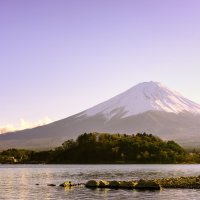
Japan will allow visa-free, independent tourism and abolish daily arrival caps from Oct 11th, announces Prime Minister Kishida. Via Japan Times
Borders open for Tour Groups
Japan's cautious reopening to overseas tourists coincides with strict infection-prevention measures and rules for those hoping to visit Japan. Via Nippon
Temporarily Closed Places in Japan: A-Z Directory

Mazda Museum
The Mazda Museum is currently closed. Tour reservations are also temporarily unavailable. Further updates will be posted to the Mazda Museum official..
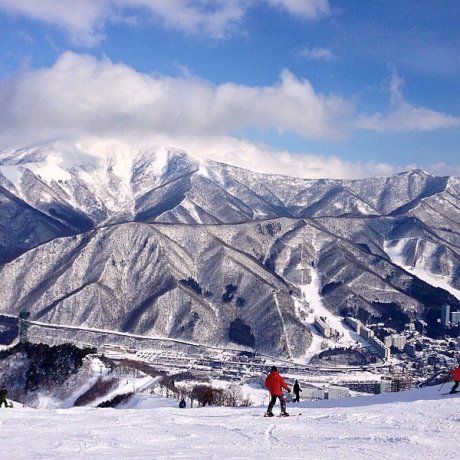
Naeba Ski Resort

Robot Restaurant
Temporarily closed until further notice due to coronavirus measures

Toei Animation Museum
Cancelled events, covid in japan faq, what precautions work best against coronavirus.
The World Health Organization's advice is as follows:
- Wash your hands regularly – with soap and warm water, or alcohol-based hand sanitizers (at least 60% alcohol)
- Maintain social distancing – avoid those who are coughing or sneezing (at least 1m). Some countries are implementing lockdowns and recommending keeping 2m from strangers.
- Avoid touching eyes, nose and mouth – potential points of entry for coronavirus particles
- Practice respiratory hygiene – covering your mouth when you cough, and disposing of tissues promptly followed by washing hands.
- Wear a mask – wearing a face covering can help prevent the spread of infection. See their dedicated guidance here on face masks .
Should I wear a mask?
Summary : The WHO recommends wearing face masks as of June 2020.
If you are travelling in Japan, wearing a face mask in certain contexts (e.g. riding public transport, crowded areas) can be an effective measure as part of a wider strategy against infection/transmission, as per WHO guidelines .
Do I need travel insurance?
Whether you are already in Japan, preparing for a trip, or are planning ahead, we recommend taking out comprehensive travel insurance. This is both to insure against the prospect of unforeseen medical expenses if the need arise, but also against changing travel plans as the situation develops.
Note that it is essential to check your home country travel advice if you plan to travel to Japan. This is to ensure there is no impact on your insurance coverage.
What should I do if concerned by coronavirus in Japan?
Contact JNTO's Visitor Hotline. Japan National Tourism Organization (JNTO) operate a 24/7 visitor hotline service, available in English, Chinese, Korean and Japanese. It can be called for assistance in case of accidents or emergencies relating to the coronavirus:
- From Japan 050-3816-2787
- From Overseas +81-50-3816-2787
What should I do if I feel sick?
If you are feeling unwell, please consult the following:
- List of medical institutions with foreign-language services (English),
- The JNTO Hotline: 050-3816-2787
Can tourists enter Japan?
As of Oct 11th 2022, visitors can now enter Japan visa-free for short-term stays (up to 90 days).
Official Japan travel advisories
Please consult these official advisories from countries overseas to gauge the current advice on travelling overseas at this time.
Official resources
Let us know how we can help.
- About Japan
Visiting Japan
- Information Related to COVID-19 - JapanGov
- Border enforcement measures to prevent the spread of novel coronavirus (COVID-19) - Ministry of Foreign Affairs of Japan
- TeCOT (COVID-19 Testing Center for Overseas Travelers) - Ministry of Economy, Trade and Industry
- Vaccination Certificate for Overseas Travel - Ministry of Health, Labour and Welfare
- Novel Coronavirus (COVID-19) - Ministry of Health, Labour and Welfare
- Coronavirus (COVID-19) advisory information - Japan National Tourism Organization
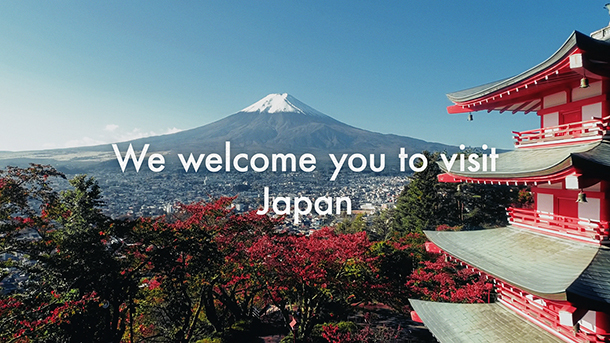
We welcome you to visit Japan
Empowering the Disabled
This movie introduces the new essential steps ahead of an unforgettable travel in Japan.
General Information
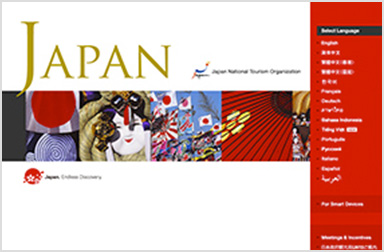
Japan: the Official Guide
Japan National Tourism Organization
General tourism information of Japan in multi languages. Climate, Healthcare, Money, Visa, Emergency info, etc. WEB: http://www.jnto.go.jp/
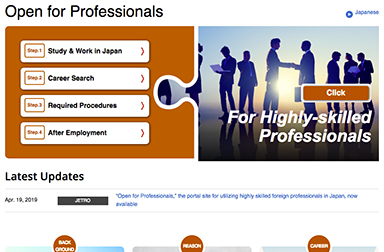
Open for Professionals
Japan External Trade Organization
The Government of Japan strongly welcomes highly-skilled foreign professionals. WEB: https://www.jetro.go.jp/en/hrportal/
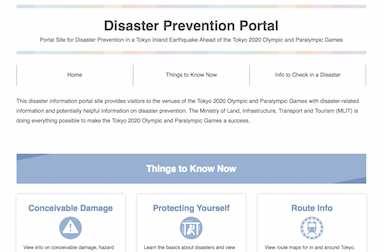
Disaster Prevention Portal
Ministry of Land, Infrastructure, Transport and Tourism
Portal Site for Disaster Prevention in a Tokyo Inland Earthquake Ahead of the Tokyo 2020 Olympic and Paralympic Games. WEB: http://www.mlit.go.jp/en/
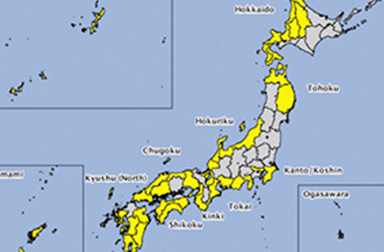
Safety Tips
Safety tips is an app to push notify the disaster information of Japan. Download the app from the website as follow; WEB: http://www.jnto.go.jp/safety-tips/
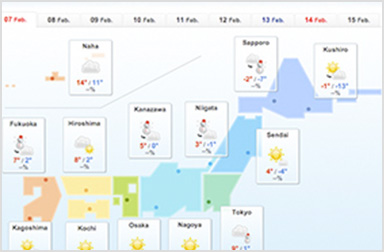
Japan Weather Forecast for Travelers
Weather forecast in English for travelers. WEB: http://www.jnto.go.jp/weather/eng/index.php
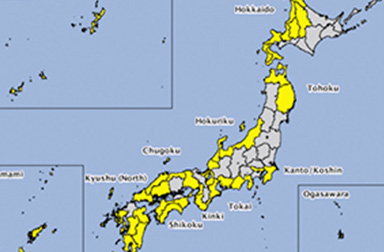
Japan Meteorological Agency
WEB: http://www.jma.go.jp/jma/indexe.html
Embassies, Visas, Customs and other Tourism Related Information
- Japanese Embassies, Consulates and Permanent Missions Overseas [Ministry of Foreign Affairs]
- Visas – Guide to Japanese Visas – [Ministry of Foreign Affairs]
- Customs – Procedures of Passenger Clearance – [Japan Customs]
- The Working Holiday Programmes in Japan [Ministry of Foreign Affairs]
- Animal Quarantine [Ministry of Agriculture, Forestry and Fisheries]
- Plant Protection Station [Ministry of Agriculture, Forestry and Fisheries]
Studying and Teaching
- Study in Japan Comprehensive Guide [Ministry of Foreign Affairs]
- Gateway to study in Japan [Japan Student Services Organization]
- Erin's Challenge! I can speak Japanese [The Japan Foundation]
- Marugoto: Japanese Language and Culture [The Japan Foundation]
- Portal Site on Policies for Foreign Residents [Cabinet Office]
- The Japan Exchange and Teaching Programme (JET)
- Skip to main content
- Skip to "About this site"
Language selection
Search travel.gc.ca.
Help us to improve our website. Take our survey !
COVID-19: travel health notice for all travellers
Japan travel advice
Latest updates: The Need help? section was updated.
Last updated: June 6, 2024 08:02 ET
On this page
Safety and security, entry and exit requirements, laws and culture, natural disasters and climate, japan - take normal security precautions.
Take normal security precautions in Japan.
Back to top
Fukushima nuclear power plant and surrounding area
Following the 2011 incident at the Fukushima Daiichi nuclear power plant, Japanese authorities have placed restrictions, including travel and overnight stay bans, on the plant's surrounding area due to the risk of exposure to radiation. Restricted areas are clearly identified.
Follow the instructions of local authorities.
Assistance of Residents Affected by the Nuclear Incidents – Japanese Ministry of Economy, Trade and Industry
Tensions on Korean Peninsula
The regional security situation on the neighbouring Korean Peninsula could deteriorate suddenly. Tensions may increase before, during and after North Korean nuclear and missile tests. Military exercises and activities may also escalate tension.
- Remain vigilant
- Monitor developments to stay informed on the current situation
- Follow the instructions of local authorities, including the Cabinet Secretariat's guidance on civil protection
Cabinet Secretariat Civil Protection Portal
Crime against foreigners is generally low. However, petty crime, such as pickpocketing and purse snatching, occurs from time to time. Be cautious in entertainment and nightlife districts throughout Japan, especially in these four in Tokyo:
If you are the victim of a crime, file a police report at the closest station of the incident. Occasionally, local police may be hesitant to prepare a report for foreigners. If this happens, contact the Embassy of Canada to Japan for assistance.
Drug trafficking
An increasing number of travellers report having been used as unwitting drug couriers.
Penalties for drug-related criminal activities are severe. Even unsuspecting individuals transporting packages containing narcotics can be criminally charged and face long jail sentences.
Be wary of individuals, even those you know, who ask you to carry a package to Japan on their behalf.
Useful links
Drugs, alcohol and travel
- International Drug Smuggling Scams
Spiked food and drinks
Never leave food or drinks unattended or in the care of strangers. Be wary of accepting snacks, beverages, gum or cigarettes from new acquaintances. These items may contain drugs that could put you at risk of sexual assault and robbery.
There are reports of incidents where staff, or other customers at bars and nightclubs, have mixed drugs and copious amounts of alcohol into drinks of unsuspecting clients. These incidents are particularly frequent in the districts of Kabukicho and Roppongi in Tokyo. The intend is usually to defraud, overcharge services, rob or assault the person.
Credit card and ATM fraud occurs. There have been incidents of overcharging at bars and clubs. Disputes over overcharging have led to violence.
Be cautious when using debit or credit cards:
- pay careful attention when your cards are being handled by others
- use ATMs located in well-lit public areas or inside a bank or business
- avoid using card readers with an irregular or unusual feature
- cover the keypad with one hand when entering your PIN
- check for any unauthorized transactions on your account statements and contact your financial institution as soon as possible if irregularities
Overseas fraud
Women's safety
Women travelling alone may be subject to some forms of harassment and verbal abuse. Inappropriate physical contact may occur on busy subways and trains. There are women-only train cars during rush hour on some subway and train lines.
Advice for women travellers
Road safety
Road conditions and road safety are generally good throughout the country. However, roads may be narrow.
Japan Road Traffic Information Center (in Japanese)
Public transportation
Taxis are generally safe.
- Use only officially marked taxis
- Negotiate fares in advance, or insist that the driver use the meter, as you may be overcharged
- Have your destination written in Japanese as drivers may not understand English
Taxis in Japan – Japan National Tourism Organization
Train and subway
Travel by subway and train is quick and convenient. Signs are usually in Japanese but signage in English is becoming more common, especially in larger cities and at tourist destinations.
General safety information
Emergency information and advice for tourists is available from the Japan National Tourism Organization .
We do not make assessments on the compliance of foreign domestic airlines with international safety standards.
Information about foreign domestic airlines
Every country or territory decides who can enter or exit through its borders. The Government of Canada cannot intervene on your behalf if you do not meet your destination’s entry or exit requirements.
We have obtained the information on this page from the Japanese authorities. It can, however, change at any time.
Verify this information with the Foreign Representatives in Canada .
Entry requirements vary depending on the type of passport you use for travel.
Before you travel, check with your transportation company about passport requirements. Its rules on passport validity may be more stringent than the country’s entry rules.
Regular Canadian passport
Your passport must be valid for the expected duration of your stay in Japan. If you plan to travel to other countries in the region, check passport validity requirements for the countries you plan to visit.
Passport for official travel
Different entry rules may apply.
Official travel
Passport with “X” gender identifier
While the Government of Canada issues passports with an “X” gender identifier, it cannot guarantee your entry or transit through other countries. You might face entry restrictions in countries that do not recognize the “X” gender identifier. Before you leave, check with the closest foreign representative for your destination.
Other travel documents
Different entry rules may apply when travelling with a temporary passport or an emergency travel document. Before you leave, check with the closest foreign representative for your destination.
- Foreign Representatives in Canada
- Canadian passports
Tourist visa: not required for stays up to a maximum of 90 days Business visa: required Work visa: required Student visa: required
You can’t apply for a business, work or student visa if you have already entered Japan as a tourist.
Business travellers need a visa if they are to receive compensation in addition to their regular salary for work carried out while in Japan.
Overstaying the 90-day, tourist visa-free limit or any other visa time limit is a criminal offence. If you overstay, you may be subject to fines and deportation, and you may be barred from re-entry to Japan.
Other entry requirements
Customs officials may ask you to show them a return or onward ticket, confirmed accommodations arrangements and proof of sufficient funds to cover your stay.
Japanese officials will photograph and fingerprint visitors upon arrival. Exceptions may apply.
Immigration Services Agency of Japan
Registration
Japanese regulations require that visiting foreigners give detailed information when checking in at hotels or other lodging facilities.
Foreigners must also allow their passports to be photocopied.
- Children and travel
Learn more about travelling with children .
Yellow fever
Learn about potential entry requirements related to yellow fever (vaccines section).
Relevant Travel Health Notices
- Global Measles Notice - 13 March, 2024
- COVID-19 and International Travel - 13 March, 2024
This section contains information on possible health risks and restrictions regularly found or ongoing in the destination. Follow this advice to lower your risk of becoming ill while travelling. Not all risks are listed below.
Consult a health care professional or visit a travel health clinic preferably 6 weeks before you travel to get personalized health advice and recommendations.
Routine vaccines
Be sure that your routine vaccinations , as per your province or territory , are up-to-date before travelling, regardless of your destination.
Some of these vaccinations include measles-mumps-rubella (MMR), diphtheria, tetanus, pertussis, polio, varicella (chickenpox), influenza and others.
Pre-travel vaccines and medications
You may be at risk for preventable diseases while travelling in this destination. Talk to a travel health professional about which medications or vaccines may be right for you, based on your destination and itinerary.
Yellow fever is a disease caused by a flavivirus from the bite of an infected mosquito.
Travellers get vaccinated either because it is required to enter a country or because it is recommended for their protection.
- There is no risk of yellow fever in this country.
Country Entry Requirement*
- Proof of vaccination is not required to enter this country.
Recommendation
- Vaccination is not recommended.
* It is important to note that country entry requirements may not reflect your risk of yellow fever at your destination. It is recommended that you contact the nearest diplomatic or consular office of the destination(s) you will be visiting to verify any additional entry requirements.
About Yellow Fever
Yellow Fever Vaccination Centres in Canada
Tick-borne encephalitis (TBE) is a risk in some areas of this destination. It is a viral disease that affects the central nervous system (brain and spinal cord). It is spread to humans by the bite of infected ticks or occasionally when unpasteurized milk products are consumed.
Travellers to areas where TBE is found may be at higher risk during April to November, and the risk is highest for people who hike or camp in forested areas.
Protect yourself from tick bites . The vaccine is not available in Canada. It may be available in the destination you are travelling to.
Measles is a highly contagious viral disease. It can spread quickly from person to person by direct contact and through droplets in the air.
Anyone who is not protected against measles is at risk of being infected with it when travelling internationally.
Regardless of where you are going, talk to a health care professional before travelling to make sure you are fully protected against measles.
Japanese encephalitis is a viral infection that can cause swelling of the brain. It is spread to humans through the bite of an infected mosquito. Risk is very low for most travellers. Travellers at relatively higher risk may want to consider vaccination for JE prior to travelling.
Travellers are at higher risk if they will be:
- travelling long term (e.g. more than 30 days)
- making multiple trips to endemic areas
- staying for extended periods in rural areas
- visiting an area suffering a JE outbreak
- engaging in activities involving high contact with mosquitos (e.g., entomologists)
Hepatitis B is a risk in every destination. It is a viral liver disease that is easily transmitted from one person to another through exposure to blood and body fluids containing the hepatitis B virus. Travellers who may be exposed to blood or other bodily fluids (e.g., through sexual contact, medical treatment, sharing needles, tattooing, acupuncture or occupational exposure) are at higher risk of getting hepatitis B.
Hepatitis B vaccination is recommended for all travellers. Prevent hepatitis B infection by practicing safe sex, only using new and sterile drug equipment, and only getting tattoos and piercings in settings that follow public health regulations and standards.
Coronavirus disease (COVID-19) is an infectious viral disease. It can spread from person to person by direct contact and through droplets in the air.
It is recommended that all eligible travellers complete a COVID-19 vaccine series along with any additional recommended doses in Canada before travelling. Evidence shows that vaccines are very effective at preventing severe illness, hospitalization and death from COVID-19. While vaccination provides better protection against serious illness, you may still be at risk of infection from the virus that causes COVID-19. Anyone who has not completed a vaccine series is at increased risk of being infected with the virus that causes COVID-19 and is at greater risk for severe disease when travelling internationally.
Before travelling, verify your destination’s COVID-19 vaccination entry/exit requirements. Regardless of where you are going, talk to a health care professional before travelling to make sure you are adequately protected against COVID-19.
The best way to protect yourself from seasonal influenza (flu) is to get vaccinated every year. Get the flu shot at least 2 weeks before travelling.
The flu occurs worldwide.
- In the Northern Hemisphere, the flu season usually runs from November to April.
- In the Southern Hemisphere, the flu season usually runs between April and October.
- In the tropics, there is flu activity year round.
The flu vaccine available in one hemisphere may only offer partial protection against the flu in the other hemisphere.
The flu virus spreads from person to person when they cough or sneeze or by touching objects and surfaces that have been contaminated with the virus. Clean your hands often and wear a mask if you have a fever or respiratory symptoms.
In this destination, rabies may be present in some wildlife species, including bats. Rabies is a deadly disease that spreads to humans primarily through bites or scratches from an infected animal.
If you are bitten or scratched by an animal while travelling, immediately wash the wound with soap and clean water and see a health care professional.
Before travel, discuss rabies vaccination with a health care professional. It may be recommended for travellers who will be working directly with wildlife.
Safe food and water precautions
Many illnesses can be caused by eating food or drinking beverages contaminated by bacteria, parasites, toxins, or viruses, or by swimming or bathing in contaminated water.
- Learn more about food and water precautions to take to avoid getting sick by visiting our eat and drink safely abroad page. Remember: Boil it, cook it, peel it, or leave it!
- Avoid getting water into your eyes, mouth or nose when swimming or participating in activities in freshwater (streams, canals, lakes), particularly after flooding or heavy rain. Water may look clean but could still be polluted or contaminated.
- Avoid inhaling or swallowing water while bathing, showering, or swimming in pools or hot tubs.
Typhoid is a bacterial infection spread by contaminated food or water. Risk is higher among children, travellers going to rural areas, travellers visiting friends and relatives or those travelling for a long period of time.
Travellers visiting regions with a risk of typhoid, especially those exposed to places with poor sanitation, should speak to a health care professional about vaccination.
Insect bite prevention
Many diseases are spread by the bites of infected insects such as mosquitoes, ticks, fleas or flies. When travelling to areas where infected insects may be present:
- Use insect repellent (bug spray) on exposed skin
- Cover up with light-coloured, loose clothes made of tightly woven materials such as nylon or polyester
- Minimize exposure to insects
- Use mosquito netting when sleeping outdoors or in buildings that are not fully enclosed
To learn more about how you can reduce your risk of infection and disease caused by bites, both at home and abroad, visit our insect bite prevention page.
Find out what types of insects are present where you’re travelling, when they’re most active, and the symptoms of the diseases they spread.
There is a risk of chikungunya in this country. The risk may vary between regions of a country. Chikungunya is a virus spread through the bite of an infected mosquito. Chikungunya can cause a viral disease that typically causes fever and pain in the joints. In some cases, the joint pain can be severe and last for months or years.
Protect yourself from mosquito bites at all times. There is no vaccine available for chikungunya.
- In this country, risk of dengue is sporadic. It is a viral disease spread to humans by mosquito bites.
- Dengue can cause flu-like symptoms. In some cases, it can lead to severe dengue, which can be fatal.
- The level of risk of dengue changes seasonally, and varies from year to year. The level of risk also varies between regions in a country and can depend on the elevation in the region.
- Mosquitoes carrying dengue typically bite during the daytime, particularly around sunrise and sunset.
- Protect yourself from mosquito bites . There is no vaccine or medication that protects against dengue fever.
Animal precautions
Some infections, such as rabies and influenza, can be shared between humans and animals. Certain types of activities may increase your chance of contact with animals, such as travelling in rural or forested areas, camping, hiking, and visiting wet markets (places where live animals are slaughtered and sold) or caves.
Travellers are cautioned to avoid contact with animals, including dogs, livestock (pigs, cows), monkeys, snakes, rodents, birds, and bats, and to avoid eating undercooked wild game.
Closely supervise children, as they are more likely to come in contact with animals.
Person-to-person infections
Stay home if you’re sick and practise proper cough and sneeze etiquette , which includes coughing or sneezing into a tissue or the bend of your arm, not your hand. Reduce your risk of colds, the flu and other illnesses by:
- washing your hands often
- avoiding or limiting the amount of time spent in closed spaces, crowded places, or at large-scale events (concerts, sporting events, rallies)
- avoiding close physical contact with people who may be showing symptoms of illness
Sexually transmitted infections (STIs) , HIV , and mpox are spread through blood and bodily fluids; use condoms, practise safe sex, and limit your number of sexual partners. Check with your local public health authority pre-travel to determine your eligibility for mpox vaccine.
Medical services and facilities
Health care is very good. Service is available throughout the country.
Services in English could be limited, especially in rural areas. The cost of health-care services is similar to Canada. As a foreigner, you will likely have to pay in advance or provide a document proving that the bill will be paid prior to discharge.
Make sure you get travel insurance that includes coverage for medical evacuation and hospital stays.
Travel health and safety
Health insurance for foreign workers
As a Canadian working in Japan, you must have medical and health services coverage for the duration of your stay. If not provided by your Japanese employer, you must subscribe to the national health insurance plan.
If you need to consult medical professionals, the following organizations can refer you to medical facilities with English and other foreign language-speaking staff:
- Guide for when you are feeling ill – Japan National Tourism Organization
- Medical information net (NABII) – Ministry of Health, Labour and Welfare
- AMDA International Medical Information Center
Keep in Mind...
The decision to travel is the sole responsibility of the traveller. The traveller is also responsible for his or her own personal safety.
Be prepared. Do not expect medical services to be the same as in Canada. Pack a travel health kit , especially if you will be travelling away from major city centres.
You must abide by local laws.
In many cases, arrested or detained suspects are denied oral or written communication with anyone other than their lawyer or a Canadian consular representative for an extended period.
If you are detained, even for a minor offence, you may be held without charge for up to 23 days. Police officers may begin their initial questioning before you see a lawyer. You could also be in detention for weeks or months during the investigation and legal proceedings.
- Overview of the criminal law system in Japan
- Arrest and detention
Penalties for possession, use or trafficking of illegal drugs are severe. Convicted offenders can expect jail sentences and heavy fines. Japan has a zero-tolerance policy with respect to drugs, including recreational drugs and cannabis. Severe penalties are imposed for the possession of even a small quantity.
Medications
Certain medications are banned in Japan, including:
- amphetamines
- methamphetamines
- pseudoephedrine
You may bring a one-month supply of prescription medication or a two-month supply of non-prescription medication into Japan, as long as the medication does not contain narcotics (including codeine). You cannot bring banned substances with you, even with a prescription.
You must have a doctor’s note that states your full name, address, the reason for use, and dosage, along with your prescribed medication. Local authorities may also request a detailed listing of the contents of the medication.
If you wish to bring in larger supplies of medication or bring in prescription medication that contains narcotics, you must apply in advance for import certification. You should do so several months prior to arrival.
Bringing medicines for personal use into Japan – Japanese Ministry of Health, Labour and Welfare
2SLGBTQI+ travellers
Japanese law doesn't prohibit sexual acts between individuals of the same sex. However, homosexuality is not widely socially accepted.
Travel and your sexual orientation, gender identity, gender expression and sex characteristics
Dual citizenship
Dual citizenship is not legally recognized in Japan.
If local authorities consider you a citizen of Japan, they may refuse to grant you access to Canadian consular services. This will prevent us from providing you with those services.
Travellers with dual citizenship
If you acquire 2 or more citizenships at birth, you can keep them all, including Japanese citizenship, until the age of 18. At 18, you must choose between your Japanese citizenship or other citizenships within a 2-year period.
Japanese family law is different from Canadian family law.
In Japan, joint custody of a child after separation is not a legal option if one of the parents is a Japanese national. As a result, access rights for a non-custodial parent can be limited, if granted.
If you are involved in a custody or other family law dispute in Japan, consult a Japanese family lawyer.
International Child Abduction
The Hague Convention on the Civil Aspects of International Child Abduction is an international treaty. It can help parents with the return of children who have been removed to or retained in certain countries in violation of custody rights. The convention applies between Canada and Japan.
If your child was wrongfully taken to, or is being held in Japan, and if the applicable conditions are met, you may apply for the return of your child to the Japanese court.
If you are in this situation:
- act as quickly as you can
- contact the Central Authority for your province or territory of residence for information on starting an application under The Hague Convention
- consult a lawyer in Canada and in Japan to explore all the legal options for the return of your child
- report the situation to the nearest Canadian government office abroad or to the Vulnerable Children's Consular Unit at Global Affairs Canada by calling the Emergency Watch and Response Centre
If your child was removed from a country other than Canada, consult a lawyer to determine if The Hague Convention applies.
Be aware that Canadian consular officials cannot interfere in private legal matters or in another country's judicial affairs.
- List of Canadian Central Authorities for the Hague Convention
- International Child Abductions: A guide for affected parents
- The Hague Convention – Hague Conference on Private International Law
- Canadian embassies and consulates by destination
- Request emergency assistance
Identification
You must carry your passport or residence card at all times.
A photocopy will not satisfy authorities. Police officers in Japan may ask for your identification documents at any time.
If you fail to do so, you could face arrest or detention.
Working in Japan
Working without an appropriate visa is illegal. Offenders may be subject to imprisonment, a fine and deportation.
If you are considering employment offers in Japan, contact the Japanese embassy or consulate nearest you before coming to Japan.
Foreign diplomatic missions and consulates in Canada
Teaching English
You should carefully review a contract to teach English before you sign. There have been incidents of employers not adhering to their contractual obligations.
Ensure that all terms and conditions of employment are clearly stated in the contract and that you meet all requirements before accepting an offer.
More on teaching English in Japan
You may be denied entry to public establishments such as swimming pools, hot springs, beaches and some gyms if you have a tattoo.
Some establishments may ask that you cover your tattoo.
Traffic drives on the left.
You must carry an international driving permit along with your Canadian licence, or a Japanese driver’s licence.
International Driving Permit
You must also obtain Japanese insurance. There are two types of driving insurance available:
- compulsory insurance, which is basic government-mandated insurance covering your legal liability
- voluntary insurance, obtained on your own from a private company and designed for your needs
Should you have an accident, compulsory insurance may not be sufficient.
Drinking and driving
Penalties for drinking and driving are severe.
Under Japanese law, it’s forbidden to:
- drive if you have been drinking
- lend a car to someone who has been drinking
- serve alcohol to someone who has to drive
If you are a passenger in a car whose driver is under the influence of alcohol, you both are subject to prosecution.
The currency of Japan is the yen (JPY).
Credit cards are accepted in most major hotels and restaurants, but Japan is a predominantly cash-based society.
ATMs are widely available, but many don’t accept foreign debit cards.
Typhoons usually occur between June and October. During this period, even small storms can quickly develop into major typhoons. Southern areas, including Okinawa and surrounding islands, are more vulnerable.
These severe storms can put you at risk and hamper the provision of essential services.
If you decide to travel to Japan during the typhoon season:
- know that you expose yourself to serious safety risks
- be prepared to change your travel plans on short notice, including cutting short or cancelling your trip
- stay informed of the latest regional weather forecasts
- carry emergency contact information for your airline or tour operator
- follow the advice and instructions of local authorities
- Tornadoes, cyclones, hurricanes, typhoons and monsoons
- Large-scale emergencies abroad
- Japan Meteorological Agency
Seismic activity
Japan is located in an active seismic zone and is prone to a multitude of natural disasters such as earthquakes, tsunamis, flooding, volcanic eruptions. Strong earthquakes occur, as well as tsunamis.
Earthquakes
Each year, Japan experiences thousands of earthquakes of varying magnitudes, some triggering tsunamis. Deaths, injuries and significant damage may occur.
Earthquakes - Government of Canada
Japan is prone to tsunamis. A tsunami can occur within minutes of a nearby earthquake. However, the risk of tsunami can remain for several hours following the first tremor. If you’re staying on the coast, familiarize yourself with the region’s evacuation plans in the event of a tsunami warning.
Tsunami alerts - U.S. Tsunami Warning System
There are a number of active volcanoes. The Japan Meteorological Agency lists active volcanoes and associated warnings.
If you are travelling near a volcano, check for the latest activity and warnings. Always follow the advice and instructions of local authorities.
Volcanic alert levels and warnings - Japan Meteorological Agency
Seasonal risks
Snowstorms occur in western Honshu and Hokkaido from December to March.
Avalanches can occur in mountainous areas, including at ski resorts. These can cause power disruptions, make roads impassable and limit the ability of responders to reach these areas in case of emergency.
- Information in case of natural disasters - Japan National Tourism Organization
Local services
In case of emergency, dial:
- police: 110
- medical assistance: 119
- firefighters: 119
Consular assistance
For emergency consular assistance, call the Embassy of Canada to Japan, in Tokyo, and follow the instructions. At any time, you may also contact the Emergency Watch and Response Centre in Ottawa.
When calling from within Japan, the area code is preceded by a 0. There is no 0 when calling from outside Japan. If placing a call to a cellular phone number, you do not need to enter the code.
The decision to travel is your choice and you are responsible for your personal safety abroad. We take the safety and security of Canadians abroad very seriously and provide credible and timely information in our Travel Advice to enable you to make well-informed decisions regarding your travel abroad.
The content on this page is provided for information only. While we make every effort to give you correct information, it is provided on an "as is" basis without warranty of any kind, expressed or implied. The Government of Canada does not assume responsibility and will not be liable for any damages in connection to the information provided.
If you need consular assistance while abroad, we will make every effort to help you. However, there may be constraints that will limit the ability of the Government of Canada to provide services.
Learn more about consular services .
Risk Levels
take normal security precautions.
Take similar precautions to those you would take in Canada.

Exercise a high degree of caution
There are certain safety and security concerns or the situation could change quickly. Be very cautious at all times, monitor local media and follow the instructions of local authorities.
IMPORTANT: The two levels below are official Government of Canada Travel Advisories and are issued when the safety and security of Canadians travelling or living in the country or region may be at risk.
Avoid non-essential travel
Your safety and security could be at risk. You should think about your need to travel to this country, territory or region based on family or business requirements, knowledge of or familiarity with the region, and other factors. If you are already there, think about whether you really need to be there. If you do not need to be there, you should think about leaving.
Avoid all travel
You should not travel to this country, territory or region. Your personal safety and security are at great risk. If you are already there, you should think about leaving if it is safe to do so.
Cookies on GOV.UK
We use some essential cookies to make this website work.
We’d like to set additional cookies to understand how you use GOV.UK, remember your settings and improve government services.
We also use cookies set by other sites to help us deliver content from their services.
You have accepted additional cookies. You can change your cookie settings at any time.
You have rejected additional cookies. You can change your cookie settings at any time.
Register to vote Register by 18 June to vote in the General Election on 4 July.
- Passports, travel and living abroad
- Travel abroad
- Foreign travel advice
Warnings and insurance
The Foreign, Commonwealth & Development Office ( FCDO ) provides advice about risks of travel to help British nationals make informed decisions. Find out more about FCDO travel advice .
Before you travel
No travel can be guaranteed safe. Read all the advice in this guide and any specific travel advice that applies to you:
- women travellers
- disabled travellers
- LGBT+ travellers
Follow and contact FCDO travel on Twitter , Facebook and Instagram . You can also sign up to get email notifications when this advice is updated.
Travel insurance
If you choose to travel, research your destinations and get appropriate travel insurance . Insurance should cover your itinerary, planned activities and expenses in an emergency.
Related content
Is this page useful.
- Yes this page is useful
- No this page is not useful
Help us improve GOV.UK
Don’t include personal or financial information like your National Insurance number or credit card details.
To help us improve GOV.UK, we’d like to know more about your visit today. Please fill in this survey (opens in a new tab) .
Awesome, you're subscribed!
Thanks for subscribing! Look out for your first newsletter in your inbox soon!
The best things in life are free.
Sign up for our email to enjoy your city without spending a thing (as well as some options when you’re feeling flush).
Déjà vu! We already have this email. Try another?
By entering your email address you agree to our Terms of Use and Privacy Policy and consent to receive emails from Time Out about news, events, offers and partner promotions.
- Things to Do
- Food & Drink
- Arts & Culture
- Time Out Market
- Coca-Cola Foodmarks
- Los Angeles
Get us in your inbox
🙌 Awesome, you're subscribed!

Is it safe to travel to Japan right now? The latest travel advice after earthquake and tsunami warning
The west coast of the country was struck by a 7.6 magnitude earthquake on January 1

Japan is an absolute cracker of a travel destination, with everything from 24-hour cities and hot springs to idyllic countryside and beaches. However, the country’s islands occupy a patch on the western edge of the Ring of Fire, so the country is prone to natural disasters. In 2011, a 9 magnitude earthquake triggered an extremely damaging tsunami, which killed around 18,000 people.
On Monday, January 1, a 7.6 magnitude earthquake struck the west coast of the main island of Honshu, with a shallow depth of only 10km. Hundreds of buildings have been destroyed, and there have been numerous aftershocks. The death toll currently stands at 64.
Here is everything you need to know about travelling to Japan after the earthquakes and tsunami warnings.
Is it safe to travel to Japan?
It’s not safe to travel to the affected areas; namely western coastal areas including Niigata, Toyama, and Ishikawa . A series of major earthquakes began Monday morning (January 1), with one that registered a magnitude of 7.6. The earthquakes have so far killed at least 64 people. 1,000 army personnel have tried to begin rescue operations in the Noto Peninsula, which is the worst affected area, but damage and blocked roads have been a hindrance.
There’s lots more advice on safety measures on the Japan National Tourism Agency website here .
Is it safe to travel to Tokyo following the earthquake?
Tokyo is 300km from the west coast, which is where the earthquake struck, though it’s been reported that buildings in the capital still experienced shaking. However, with Tokyo located on the east coast, travelling to the Japanese capital has not been advised against.
At around 6pm local time on Tuesday, January 2, a passenger plane collided with a coast guard aircraft at Tokyo Haneda airport, and five of the six members of the coast guard have died. The airport has since resumed flights.
What about Osaka?
There is little news of the impact of the earthquakes on Osaka . The city is around 350km from the Noto peninsula, on the eastern end of the Inland Sea, the opposite side of Honshu island to the epicentre of the quake. There’s no advice recommending against travelling to Osaka at this time.
Where was impacted by the earthquake in Japan?
The area affected the most is the Noto Peninsula on the coast of the Ishikawa Prefecture. At least 15 people died in Wajima city, which was still experiencing fires at 7am local time on Tuesday morning, and more than 100 buildings were destroyed.
Asachi-dori Street, an area known for its wooden buildings, was the worst affected patch. Nanao city was also affected. According to the UK Foreign Office website , ‘the affected areas include the Sea of Japan coast in: Ishikawa, Yamagata, Niigata, Toyama, Fukui, Hyogo, Hokkaido, Aomori, Akita, Kyoto, Tottori and Shimane prefectures, plus Iki & Tsushima Islands.’
Is there still a tsunami warning in place?
Japan experienced a minor tsunami after the earthquake on Monday, though as of Tuesday morning, tsunami warnings have been lifted. The Japan Meteorological Agency ’s latest prediction indicates a slight sea level change – that’s the lowest level warning on their scale.
What are your rights if you’ve booked a trip to Japan?
Travel insurance often includes cancellation cover should your trip be impacted by a natural disaster, but it’s best to check directly with your insurance provider.
What is the UK Foreign Office’s travel advice?
A statement on the UK Foreign Office website reads: ‘A series of earthquakes hit the Noto Peninsula in Ishikawa Prefecture on January 1 2024, causing minor tsunami, several fires and significant infrastructure damage in various parts of Ishikawa Prefecture. Further aftershocks remain a possibility and transport links are disrupted. If you are in the affected areas, please follow the instructions from the local authorities and check the latest information on NHK World news .’
Have flights been cancelled?
As of Monday night (January 1), All Nippon Airways had cancelled 15 flights, and Japan Airlines had cancelled nine. According to Japan News, all flights at Noto airport, which is located in the affected peninsula, were cancelled yesterday (January 2).
Why does Japan have so many earthquakes?
According to the BBC , Japan accounts for 20 percent of earthquakes which have a magnitude of 6 or more. Japan’s islands sit on top of the meeting of four tectonic plate boundaries (North American, Eurasian, Pacific and Philippines Sea), meaning it is particularly prone to natural disasters like earthquakes and tsunamis – seismometers record an event of some kind every five minutes, on average.
Stay in the loop: sign up to our free Time Out Travel newsletter for all the latest travel news.
- Liv Kelly Contributing Writer
Share the story
An email you’ll actually love
Discover Time Out original video
- Press office
- Investor relations
- Work for Time Out
- Editorial guidelines
- Privacy notice
- Do not sell my information
- Cookie policy
- Accessibility statement
- Terms of use
- Modern slavery statement
- Manage cookies
- Advertising
Time Out Worldwide
- All Time Out Locations
- North America
- South America
- South Pacific
You are using an outdated browser. Upgrade your browser today or install Google Chrome Frame to better experience this site.
Travel Health Notices
Search By Country Name or Disease
CDC uses Travel Health Notices (THNs) to inform travelers about global health risks during outbreaks, special events or gatherings, and natural disasters, and to provide advice about protective actions travelers can take to prevent infection or adverse health effects.
A THN can be posted for: 1) a disease outbreak (higher number of expected cases) in a country or region, 2) sporadic cases of a disease in an unusual or new geographic location, 3) natural and human-made disasters with severe environmental health risks, or infrastructure damage that would limit healthcare services availability and 4) mass gathering events that can lead to disease outbreaks. See types of travel notices .
Level 4 - Avoid All Travel
- Currently there are no Travel Health Notices at this level.
Level 3 - Reconsider Nonessential Travel
Level 2 - practice enhanced precautions.
- There is an outbreak of chikungunya in the Malé and Hulhumalé regions of Maldives. Mosquitoes spread the virus that causes chikungunya.Chikungunya in Maldives761 New Chikungunya in Maldives May 28, 2024 There is an outbreak of chikungunya in the Malé and Hulhumalé regions of Maldives. Mosquitoes spread the virus that causes chikungunya. Read More >>
- Some international destinations have circulating poliovirus. Before any international travel, make sure you are up to date on your polio vaccines. Country List : Afghanistan, Algeria, Benin, Cameroon, Central African Republic, Chad, Côte d'Ivoire (Ivory Coast), Democratic Republic of the Congo, Madagascar, Malawi, Mozambique, Niger, Nigeria, Pakistan, Somalia, Yemen, Indonesia, Sudan, Mali, Botswana, Zambia, Republic of the Congo , Burundi, Burkina Faso, Kenya, Tanzania, including Zanzibar, Guinea, Mauritania, Egypt, Zimbabwe, Angola, Liberia, Senegal, Sierra LeoneGlobal Polio734 Global Polio May 23, 2024 Some international destinations have circulating poliovirus. Before any international travel, make sure you are up to date on your polio vaccines. Destination List: Afghanistan, Algeria, Angola, Benin, Botswana, Burkina Faso, Burundi, Cameroon, Central African Republic, Chad, Côte d'Ivoire (Ivory Coast), Democratic Republic of the Congo, Egypt, Guinea, Indonesia, Kenya, Liberia, Madagascar, Malawi, Mali, Mauritania, Mozambique, Niger, Nigeria, Pakistan, Republic of the Congo, Senegal, Sierra Leone, Somalia, Sudan, Tanzania, including Zanzibar, Yemen, Zambia, Zimbabwe Read More >>
- There are confirmed and suspect cases of diphtheria in several regions in Guinea. Vaccination against diphtheria is essential to protect against disease. If you are traveling to an affected area, you should be up to date with your diphtheria vaccines.Diphtheria in Guinea751 Diphtheria in Guinea April 23, 2024 There are confirmed and suspect cases of diphtheria in several regions in Guinea. Vaccination against diphtheria is essential to protect against disease. If you are traveling to an affected area, you should be up to date with your diphtheria vaccines. Read More >>
- There is an outbreak of chikungunya in Timor-Leste.Chikungunya in Timor-Leste759 Chikungunya in Timor-Leste April 05, 2024 There is an outbreak of chikungunya in Timor-Leste. Read More >>
- Yellow fever cases remain elevated in Nigeria, after an outbreak was first reported in November 2020. Travelers to Nigeria should take steps to prevent yellow fever by getting vaccinated at least 10 days before travel and taking steps to prevent mosquito bites.Yellow Fever in Nigeria392 Yellow Fever in Nigeria March 28, 2024 Yellow fever cases remain elevated in Nigeria, after an outbreak was first reported in November 2020. Travelers to Nigeria should take steps to prevent yellow fever by getting vaccinated at least 10 days before travel and taking steps to prevent mosquito bites. Read More >>
- There is an outbreak of diphtheria in Niger. If you are traveling to an affected area, you should be up to date with your diphtheria vaccines.Diphtheria in Niger752 Diphtheria in Niger February 25, 2024 There is an outbreak of diphtheria in Niger. If you are traveling to an affected area, you should be up to date with your diphtheria vaccines. Read More >>
- There is an outbreak of diphtheria in several states in Nigeria. Vaccination against diphtheria is essential to protect against disease. If you are traveling to an affected area, you should be up to date with your diphtheria vaccines.Diphtheria in Nigeria 740 Diphtheria in Nigeria February 16, 2024 There is an outbreak of diphtheria in several states in Nigeria. Vaccination against diphtheria is essential to protect against disease. If you are traveling to an affected area, you should be up to date with your diphtheria vaccines. Read More >>
- There is an outbreak of mpox in 22 out of 26 provinces, including urban areas, in the DRC.Mpox in the Democratic Republic of the Congo438 Mpox in the Democratic Republic of the Congo February 16, 2024 There is an outbreak of mpox in 22 out of 26 provinces, including urban areas, in the DRC. Read More >>
Level 1 - Practice Usual Precautions
- There are outbreaks of Oropouche fever in parts of Brazil, Bolivia, Peru, Colombia, and Cuba. Travelers to affected areas should take steps to avoid bug bites. Country List : Brazil, Bolivia, Peru, Colombia, CubaOropouche Fever in the Americas758 Oropouche Fever in the Americas June 05, 2024 There are outbreaks of Oropouche fever in parts of Brazil, Bolivia, Peru, Colombia, and Cuba. Travelers to affected areas should take steps to avoid bug bites. Destination List: Bolivia, Brazil, Colombia, Cuba, Peru Read More >>
- Many international destinations are reporting increased numbers of cases of measles. Country List : Afghanistan, Angola, Benin, Cameroon, Central African Republic, Chad, Côte d'Ivoire (Ivory Coast), Democratic Republic of the Congo, Djibouti, Ethiopia, Gabon, India, Indonesia, Liberia, Niger, Nigeria, Pakistan, Republic of the Congo , Senegal, Somalia, Republic of South Sudan, Sudan, Tajikistan, Togo, Yemen, Zambia, Nepal, Kyrgyzstan, Armenia, Mauritania, Lebanon, Equatorial Guinea, Syria, Ghana, Kazakhstan, Burkina Faso, Turkey, Qatar, United Arab Emirates, Libya, Burundi, Romania, Malaysia, Russia, Azerbaijan, Sri Lanka, Uzbekistan, Philippines, Austria, BelarusGlobal Measles743 Updated Global Measles May 28, 2024 Many international destinations are reporting increased numbers of cases of measles. Destination List: Afghanistan, Angola, Armenia, Austria, Azerbaijan, Belarus, Benin, Burkina Faso, Burundi, Cameroon, Central African Republic, Chad, Côte d'Ivoire (Ivory Coast), Democratic Republic of the Congo, Djibouti, Equatorial Guinea, Ethiopia, Gabon, Ghana, India, Indonesia, Kazakhstan, Kyrgyzstan, Lebanon, Liberia, Libya, Malaysia, Mauritania, Nepal, Niger, Nigeria, Pakistan, Philippines, Qatar, Republic of South Sudan, Republic of the Congo, Romania, Russia, Senegal, Somalia, Sri Lanka, Sudan, Syria, Tajikistan, Togo, Turkey, United Arab Emirates, Uzbekistan, Yemen, Zambia Read More >>
- The Hajj, or pilgrimage to Mecca, Saudi Arabia, is one of the world’s largest mass gatherings. Mass gatherings, such as Hajj or Umrah, can increase the risk for infections such as meningococcal disease.Meningococcal Disease in Saudi Arabia - Vaccine Requirements for Travel During the Hajj and Umrah Pilgrimages146 New Meningococcal Disease in Saudi Arabia - Vaccine Requirements for Travel During the Hajj and Umrah Pilgrimages May 20, 2024 The Hajj, or pilgrimage to Mecca, Saudi Arabia, is one of the world’s largest mass gatherings. Mass gatherings, such as Hajj or Umrah, can increase the risk for infections such as meningococcal disease. Read More >>
- Dengue is a risk in many parts of Central and South America, Mexico, and the Caribbean. Some countries are reporting increased numbers of cases of the disease. Travelers to the Americas can protect themselves by preventing mosquito bites. Country List : Colombia, Guatemala, Nicaragua, Panama, Guadeloupe, Martinique (France), Costa Rica, French Guiana (France), Mexico, Brazil, Paraguay, Argentina, Peru, Ecuador, including the Galápagos Islands, Uruguay, Curaçao, Guyana, HondurasDengue in the Americas427 Dengue in the Americas May 16, 2024 Dengue is a risk in many parts of Central and South America, Mexico, and the Caribbean. Some countries are reporting increased numbers of cases of the disease. Travelers to the Americas can protect themselves by preventing mosquito bites. Destination List: Argentina, Brazil, Colombia, Costa Rica, Curaçao, Ecuador, including the Galápagos Islands, French Guiana (France), Guadeloupe, Guatemala, Guyana, Honduras, Martinique (France), Mexico, Nicaragua, Panama, Paraguay, Peru, Uruguay Read More >>
- Dengue is a risk in many parts of Africa and the Middle East. Some countries are reporting increased numbers of cases of the disease. Travelers to Africa and the Middle East can protect themselves by preventing mosquito bites. Country List : Sudan, Burkina Faso, Mali, Ethiopia, MauritiusDengue in Africa and the Middle East428 Dengue in Africa and the Middle East May 16, 2024 Dengue is a risk in many parts of Africa and the Middle East. Some countries are reporting increased numbers of cases of the disease. Travelers to Africa and the Middle East can protect themselves by preventing mosquito bites. Destination List: Burkina Faso, Ethiopia, Mali, Mauritius, Sudan Read More >>
- Dengue is a risk in many parts of Asia and the Pacific Islands. Some countries are reporting increased numbers of cases of the disease. Travelers to Asia and the Pacific Islands can protect themselves by preventing mosquito bites. Country List : Sri Lanka, Cambodia, Indonesia, Laos, Singapore, Fiji, SamoaDengue in Asia and the Pacific Islands429 Dengue in Asia and the Pacific Islands May 16, 2024 Dengue is a risk in many parts of Asia and the Pacific Islands. Some countries are reporting increased numbers of cases of the disease. Travelers to Asia and the Pacific Islands can protect themselves by preventing mosquito bites. Destination List: Cambodia, Fiji, Indonesia, Laos, Samoa, Singapore, Sri Lanka Read More >>
- There are reports of Western equine encephalitis virus (WEEV) infections in horses, humans or both, in parts of Argentina and Uruguay. Country List : Argentina, UruguayWestern Equine Encephalitis Virus in South America760 Western Equine Encephalitis Virus in South America March 14, 2024 There are reports of Western equine encephalitis virus (WEEV) infections in horses, humans or both, in parts of Argentina and Uruguay. Destination List: Argentina, Uruguay Read More >>
- There have been reports of Rocky Mountain spotted fever (RMSF) in people traveling to the United States from Tecate, in the state of Baja California, Mexico.Rocky Mountain Spotted Fever in Mexico 756 Rocky Mountain Spotted Fever in Mexico March 12, 2024 There have been reports of Rocky Mountain spotted fever (RMSF) in people traveling to the United States from Tecate, in the state of Baja California, Mexico. Read More >>
- An outbreak of extensively drug-resistant (XDR) typhoid fever in Pakistan is ongoing. Extensively drug-resistant infections do not respond to most antibiotics.XDR Typhoid Fever in Pakistan397 XDR Typhoid Fever in Pakistan June 16, 2023 An outbreak of extensively drug-resistant (XDR) typhoid fever in Pakistan is ongoing. Extensively drug-resistant infections do not respond to most antibiotics. Read More >>
- Some travelers who have spent time in Mexico have been infected with multidrug-resistant (MDR) Salmonella Newport. Salmonella Newport in Mexico732 Salmonella Newport in Mexico March 29, 2023 Some travelers who have spent time in Mexico have been infected with multidrug-resistant (MDR) Salmonella Newport. Read More >>
Types of Notices
Visit U.S. Department of State's website for the latest Travel Advisories .
File Formats Help:
- Adobe PDF file
- Microsoft PowerPoint file
- Microsoft Word file
- Microsoft Excel file
- Audio/Video file
- Apple Quicktime file
- RealPlayer file
- Zip Archive file
Exit Notification / Disclaimer Policy
- The Centers for Disease Control and Prevention (CDC) cannot attest to the accuracy of a non-federal website.
- Linking to a non-federal website does not constitute an endorsement by CDC or any of its employees of the sponsors or the information and products presented on the website.
- You will be subject to the destination website's privacy policy when you follow the link.
- CDC is not responsible for Section 508 compliance (accessibility) on other federal or private website.
Japan Travel Stories
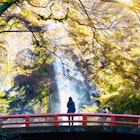
Mar 31, 2024 • 7 min read
Be ready for a visit to Japan with these tips on health, safety and etiquette.

Mar 28, 2024 • 7 min read
Keep costs low when exploring Japan with these top money-saving tips.
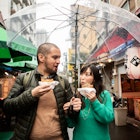
Mar 28, 2024 • 6 min read
From buzzing cities to pristine island getaways, here's our guide to the best places to visit in Japan.
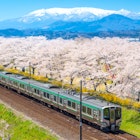
Mar 28, 2024 • 11 min read
You will fall passionately in love with trains in Japan. Find your way across the country with our ultimate guide.
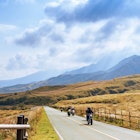
Japan has excellent roads, dramatic landscapes and exciting regions to discover. Here are the best 10 road trips for getting to know the country better.

Mar 26, 2024 • 8 min read
Japan's seasons offer an incredible range of natural and cultural wonders that draw huge numbers of visitors. Here's how to pick the perfect time for you.
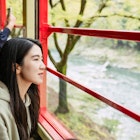
Mar 25, 2024 • 9 min read
With its myriad islands, towering mountains and megacities, Japan can be a daunting destination to get around. We've got everything you need to know.

Mar 23, 2024 • 17 min read
From classic Japanese food and sights to local favorites and under-the-radar trends, these are 24 of the most inspiring experiences in Japan.

Feb 11, 2024 • 11 min read
No matter where you go in Japan, you’ll find it’s an easy, fun and safe place to travel with kids.

Feb 9, 2024 • 9 min read
Make the most out of Japan by train. In six simple steps.

Dec 24, 2023 • 3 min read
From mystic mountains to mighty megacities, Japan is awash with iconic travel experiences. Here's what you need to know about visa requirements.
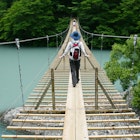
Dec 13, 2023 • 6 min read
With so many mountains, it’s no surprise that hiking is a popular pursuit in Japan. Here are 6 of the best hiking routes.

Apr 28, 2023 • 6 min read
If you had to make the tough decision to visit either Japan or South Korea, which would it be? Let two expert writers help you decide.
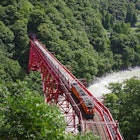
Mar 4, 2023 • 8 min read
John Walton winds his way through the mountainous Japanese countryside on the charming Hida train.

Feb 23, 2023 • 7 min read
Japan has reopened, so it's time to look again at the country's greatest hits for first-timers and repeat visitors

Jan 12, 2023 • 5 min read
Spring means cherry blossom season in Japan, but the romance is fleeting lasting only for a week or two. Here the five best places to join the festivities.

Oct 19, 2022 • 4 min read
Fans of Studio Ghibli films will be able to visit Ghibli Park next month in Nagoya, Japan.

Oct 5, 2022 • 5 min read
Japan is easing entry rules on October 11, but does that mean it will be as easy to visit as before the pandemic? Here’s what you need to know

Sep 2, 2022 • 6 min read
From beach resorts just an hour from Tokyo to tropical island idylls, Japan's beaches are its best-kept secret. Here's our pick of Japan's best sands.
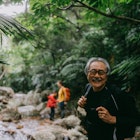
May 30, 2022 • 6 min read
Whether you enjoy natural hot springs or colourful spring blooms, here's our pick of the best national parks in Japan.

Mar 2, 2022 • 6 min read
Trends come and go but karaoke has been a fixture of Japan's culture for decades. It doesn't matter if you're a good singer, as long as you've got heart.

Feb 1, 2022 • 10 min read
Explore eight of the most renowned destinations for sake in Japan, three on a “Northern Route” and five on a “Southern Route”
Enable JavaScript
Please enable JavaScript to fully experience this site. How to enable JavaScript
Travel alerts
When severe weather or other uncontrollable events impact your flight and travel dates, you may be able to change your trip with no change fee.
We understand you may have questions about your upcoming travel. We’re working around the clock to care for you on your travel journey.
Current travel alerts
Information current As of June 7, 2024
If you're traveling to / through / from:
- Caxias do Sul, Brazil (CXJ)
- Chapeco, Brazil (XAP)
- Passo Fundo, Brazil (PFB)
- Pelotas, Brazil (PET)
- Porto Alegre, Brazil (POA)
- Santo Angelo, Brazil (GEL)
Your change fee is waived if you:
- Are traveling on an American Airlines flight
- Are booked in any fare class, including Basic Economy
- Bought your ticket by May 6, 2024
- Are scheduled to travel May 6 - August 31, 2024
- Can travel May 12 - September 20, 2024
- Change your origin and destination to: Canoas Air Force Base, Brazil - Alternative for Porto Alegre (QNS), Caxias do Sul (CXJ), Chapeco (XAP), Florianopolis (FLN), Navegantes (NVT) Passo Fundo (PFB), Pelotas (PET) or Santo Angelo (GEL); difference in fare may apply
- Rebook in the same cabin or pay the difference
Keep in mind:
- Your ticket must be issued by American (ticket number starts with 001)
- Changes must be booked by August 31, 2024
- Travel must be completed within 1 year of original ticket date; difference in fare may apply
Change your trip
If your trip is eligible, you can make a one-time change online. Here's how:
Find your trip
- If your trip is eligible, you'll see the option to 'change trip' in the toolbar
Contact Reservations
If you can't change your trip online, call Reservations for help.
- Tel Aviv, Israel (TLV)
- Bought your ticket by February 11, 2024
- Are scheduled to travel October 7, 2023 - October 28, 2024
- Can travel October 26, 2024 - November 24, 2024
- Don't change your origin or destination city
- Cancel your trip and request a refund
- Changes must be booked by October 28, 2024
You may also like...
- Check your flight status
- Mobile and app
- Sign up for flight notifications
- Share full article
Advertisement
Supported by
Japan Likes Tourists, Just Not This Many
The country has politely handled travelers for years, but as international visitors spill into previously untouristed spots, some residents are frustrated.

By Yan Zhuang
The writer spent several days elbowing through crowds in Kyoto and Fuji City, Japan.
On two recent occasions, a foreign tourist walked into Shoji Matsumoto’s barbershop, through a front door that grates loudly when opened more than halfway, wanting a haircut.
One was Italian, the other British. Mr. Matsumoto, who is 75 and speaks neither of their languages, didn’t know what to tell them. He picked up his scissors and began to cut, hoping that his decades of experience would carry him through the stilted encounters.
Tourists, propelled in part by a weak yen that makes their money go further in Japan, have been pouring into the country ever since it eased its coronavirus-related entry restrictions in 2022. Some officials, including Prime Minister Fumio Kishida, have raised concerns about overtourism. In March, there were more than three million international arrivals, a monthly record, and a more than 10 percent jump compared with March 2019.
Nearly two thirds of international visitors tend to be from South Korea, Taiwan and China. Last year, spending from foreign tourists made up about 9 percent of Japan’s gross domestic product.
Popular sites in cities like Kyoto, Japan’s ancient royal capital, feel increasingly unmanageable. Visitors are spilling into previously untouristed places, like small towns near Mount Fuji or the commercial district of Kyoto where Mr. Matsumoto cuts hair.
“Before, it was normal to see tourists in certain spots,” Mr. Matsumoto said from a low chair in his barbershop on a recent Saturday. “But now, they’re spreading out to random and unexpected places.”
That influx is testing the patience of a generally polite society.
In Kyoto and other heavily visited cities, some residents grumble about being priced out of hotel rooms or crowded out of buses and restaurants. Others say that tourists sometimes disrespect local customs by, say, chasing after geishas to photograph them or eating while walking, a behavior that is considered rude in Japan.
One day last month, it took Hiroshi Ban six hours — twice as long as usual — to visit Kyoto’s Heian Jingu shrine. Mr. Ban, 65, attributed the delay partly to tourists who hold up buses by counting out coins for the fare.
“Every day feels like a carnival here,” said Mr. Ban, an event organizer. “We can’t enjoy our daily lives in peace.”
Even those who directly benefit from tourism revenue worry that it might be unsustainable.
Hisashi Kobayashi, a taxi driver in Kyoto, said business was so good that taking a day off felt like passing up easy money. But many tourism-related industries were struggling to keep up with demand as they recovered from pandemic-era labor shortages, he said.
“When Japanese people come here, they feel they’re in a foreign land because there are so many tourists,” Mr. Kobayashi, 56, added as his taxi approached a bottleneck near a popular temple. “It’s not Kyoto anymore.”
Some rural locations are feeling the strain for the first time. One is Fuji City, about 200 miles by road east of Kyoto in Shizuoka Prefecture.
After a bridge with a direct view of Mount Fuji started to become popular on social media late last year, Shizuoka’s tourism department said on Instagram that it was a good spot for “beautiful, dreamlike pictures.” Left unsaid was that the bridge sat in a residential area with no visitor parking spaces, public toilets or garbage cans.
Many visitors littered, parked in driveways and in some cases dodged traffic to take photos from the bridge’s median strip, residents said in interviews.
Over a public holiday last month, about 300 tourists arrived daily for four days, standing in a line for photos that coiled down the street, said Mitsuo Kato, 86, who lives by the bridge.
“They just park here,” Mr. Kato said outside his home on a recent Sunday, as groups of tourists from South Korea diligently took photos of clouds that were obscuring Mount Fuji. “So we had to put up signs.”
Officials across Japan have been responding to the tourism surge with varying degrees of efficacy.
In Fuji City, the authorities erected a makeshift six-car parking lot and started to build a larger one that would fit 15 cars and include a bathroom, said Motohiro Sano, a local tourism official.
In a neighboring prefecture, Yamanashi, officials in the town of Fujikawaguchiko put up a billboard-size screen last month to deter tourists from photographing a Lawson convenience store whose blue awning sits beneath the mountain and became a staple of social media posts. The screen is now dotted with holes large enough to fit a phone camera lens, the local news media reported .
In Shibuya, a heavily visited area of Tokyo, officials announced plans to ban drinking alcohol outdoors at night in an attempt to curb bad behavior by young people and tourists.
And in Kyoto, where signs in train stations ask visitors to “mind your manners,” the government began running special buses for tourists this month.
At the city’s Nishiki market, where some residents have complained of finding grease stains on their clothing after squeezing through throngs of snacking tourists, Yoshino Yamaoka gestured to two signs hanging outside her barbecue eel restaurant.
Both said in English, “No eating while walking.” One had a larger font, and its text was underlined in red.
“People weren’t following it, so I put up this one with a stricter tone,” Ms. Yamaoka, 63, said of the bolder sign. But she wondered whether her new approach was too strict.
“Business depends on the tourists,” she said.
To beat the crowds on a recent weekend, some tourists visited popular Kyoto sites at sunrise or waited 40 minutes to eat at a popular ramen joint at 11 p.m. A few complained about the congestion they had helped to create.
“It’s a disaster,” said Paul Oostveen, 70, a tourist from the Netherlands, after leaving the Kiyomizu-dera Temple, a popular attraction.
From his empty barbershop, Mr. Matsumoto said that he had successfully cut the hair of his two foreign clients and that he wouldn’t turn away others who stumbled through his door.
But he worried about providing good quality service to customers he couldn’t understand, he said, and would prefer that non-Japanese speakers go elsewhere.
Even though tourism is good for the nation, he added over the drone of a radio, “There’s a part of me that’s not fully content.”
Yan Zhuang is a Times reporter in Seoul who covers breaking news. More about Yan Zhuang
Matador Original Series
Eight passengers stranded after breaking the number one rule of cruise travel.
E xperienced cruisers probably know lots of tips and tricks for traveling on cruise ships: make your dining reservations early, do laundry on board instead of overpacking , and don’t fill your days at sea with back-to-back activities.
But even first-time cruisers know one major rule that applies to all cruise lines, all cruises, and all ships, no matter where in the world you are: don’t miss the boat.
Unfortunately for eight travelers on an African cruise stopped in São Tomé and Príncipe, an island just to the east of Equatorial Guinea, they found out the hard way what happens when you break that rule. When they were late returning to their ship after a day on land, it did what it warned would happen — they were left behind by the cruise.
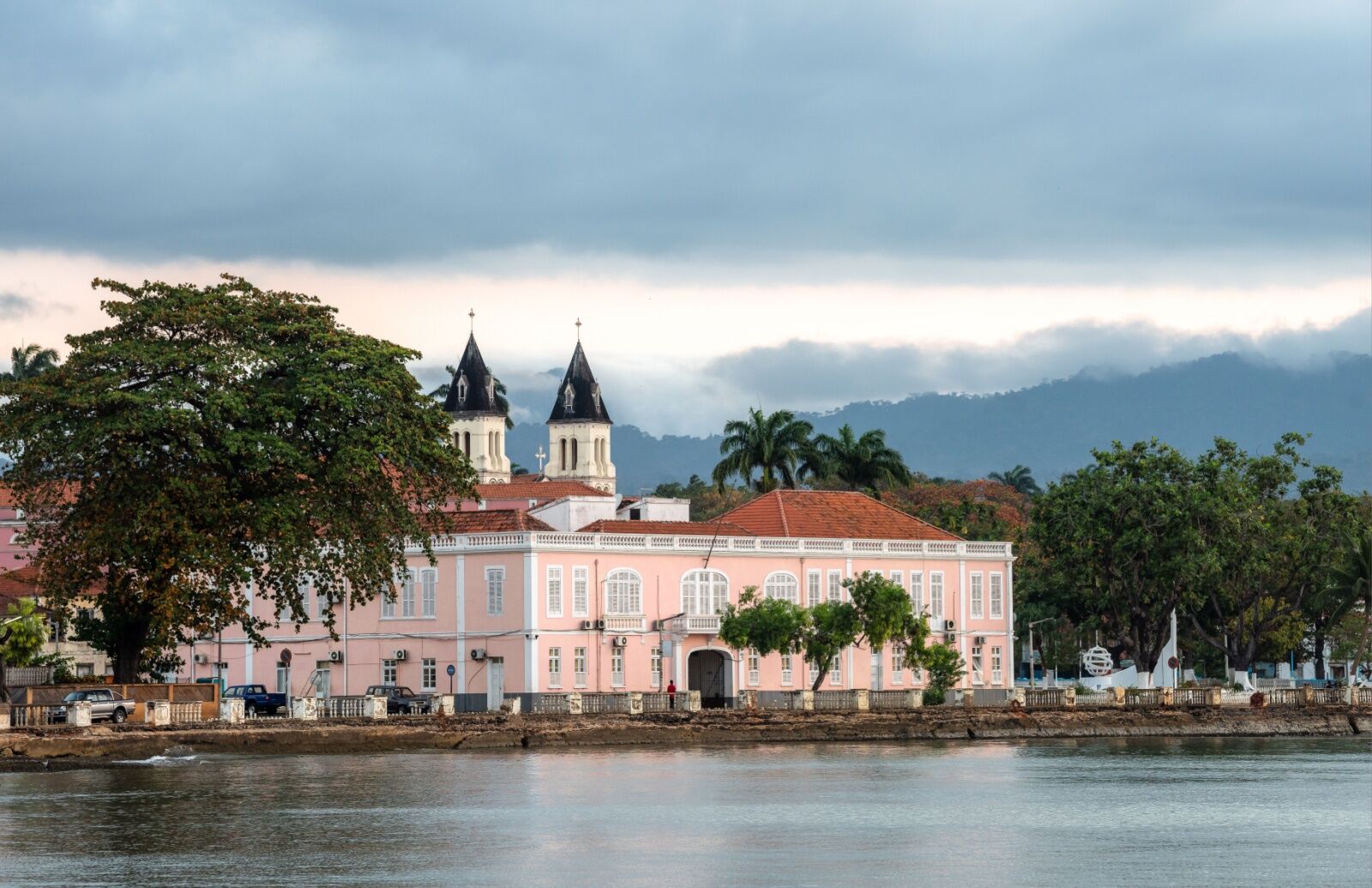
Eight passengers on the Norwegian Dawn were left stranded in Säo Tome, roughly 300 miles off the coast of mainland Africa, when they failed to return to port in time for the ship’s departure. Photo: mbrand85 /Shutterstock
The group of travelers had booked a daytime excursions through an independent company, rather than booking one directly through their ship, the Norwegian Dawn. While independent tours can be a great way to save money and have a more unique adventure, they come with one major downside, which is that ships won’t wait for passengers who are late. If you book an excursion through your cruise company, the ship is guaranteed to wait for you — but no such offer is made if you book an independent tour.
In various interviews with media outlets, the group recounted that they claimed they told their guide they were running late, causing the guide to call the ship to inform it that passengers would miss the “return to ship” time. By the time the guests finally returned to the port, the ship had finished boarding, though it was still anchored in the harbor. Harbor employees called the ship, and when they got no response, decided to ferry the passengers to the Norwegian Dawn. But the captain did not let them on board, the Daily Mail reports. Per various media sources, the ship did give the passengers their passports, which they had not taken with them.
Two Americans in the group told reporters that they thought the ship should have made an exception, seemingly implying that the following day at sea without a stop meant that it could leave late without consequence. “The captain could have made an easy decision to turn one of the tender boats back, pick us up, safely load us and then go on the way,” passenger Jay Campbell said. “They had no port to call for the next day, they were simply going to be at sea.”

Photo: Norwegian Cruise Lines
Per Norwegian Cruises’ online documents , it’s the guest’s responsibility to be back to the ship on time. “In all ports of call, it is also the guest’s responsibility to be back onboard the ship no later than one (1) hour prior to the ship’s scheduled departure time. Please be aware that shipboard time may differ from the port of call and it is the guest’s responsibility to follow the shipboard time. In the event a guest misses the ship, it will be the guest’s responsibility to pay all expenses incurred to rejoin the ship,” reads the company’s “Frequent Asked Questions” page.
The travelers are now having to do just that, with the American couple claiming they’ve spent more than $6,000 to cover the group’s time on the island and travel to rejoin the ship in Gambia or Senegal, depending on logistics. Per People Magazine , four of the travelers are older individuals, and one has an unspecified heart condition.
Matador Network recently asked a cruise line exec what happens if passengers miss their ships , and the answer is pretty straightforward across all lines and sailings: they have to pay their way to the next port.
Why ships can’t wait on late passengers
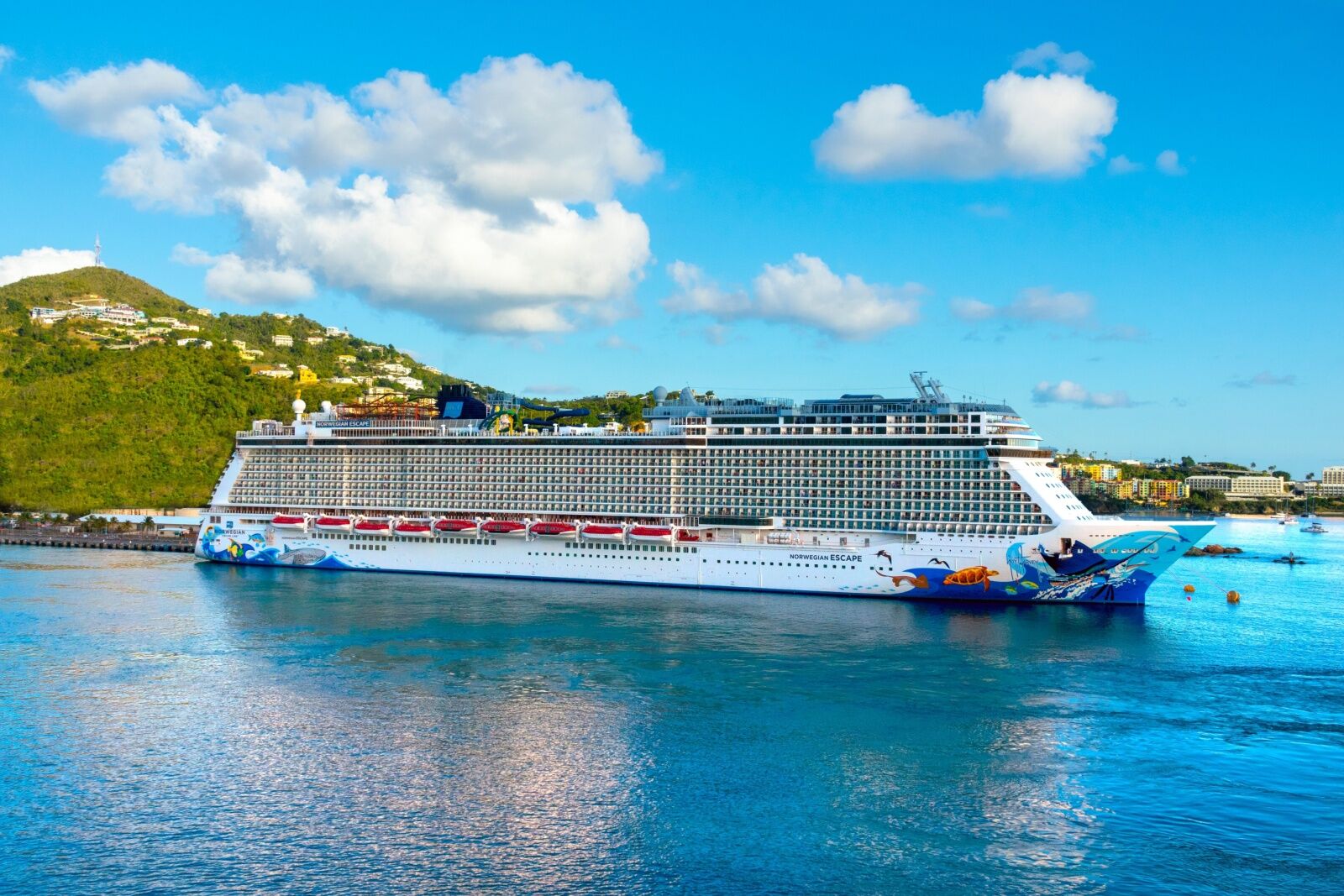
The Norwegian Dawn carries more than 2,000 guests and 1,000 passengers, all of whom need to be accounted for before the ship can leave a port. Photo: Dennis MacDonald /Shutterstock
I sailed on the Norwegian Dawn in February 2024, and while it had its ups and downs , the ship does make it very, very clear that it will leave without you if you’re late. It holds about 2,000 people, each of whom has to be accounted before prior to the ship’s departure — which is why the “ return to ship ” time at various ports is often an hour or two earlier than the actual departure time . That gives the crew and captain time to ready for departure. Large cruises like the Norwegian Dawn have to stick to a strict schedule, and can’t easily make changes.
I know this not because I’m a frequent cruiser — in fact, the Dawn was my first big cruise — but because Norwegian Cruise Lines informs you of this non-stop. The evening before you arrive, there’s a ship-wide announcement with arrival and departure times for the next day. The information is repeated — repeatedly — the morning you arrive in a port. The return to ship time is printed on the daily newsletter handed out in each room, on the free Norwegian phone app, and on all the various message boards around the ship. There’s usually a buffer time built into this window to accommodate guests who are only a few minutes late.
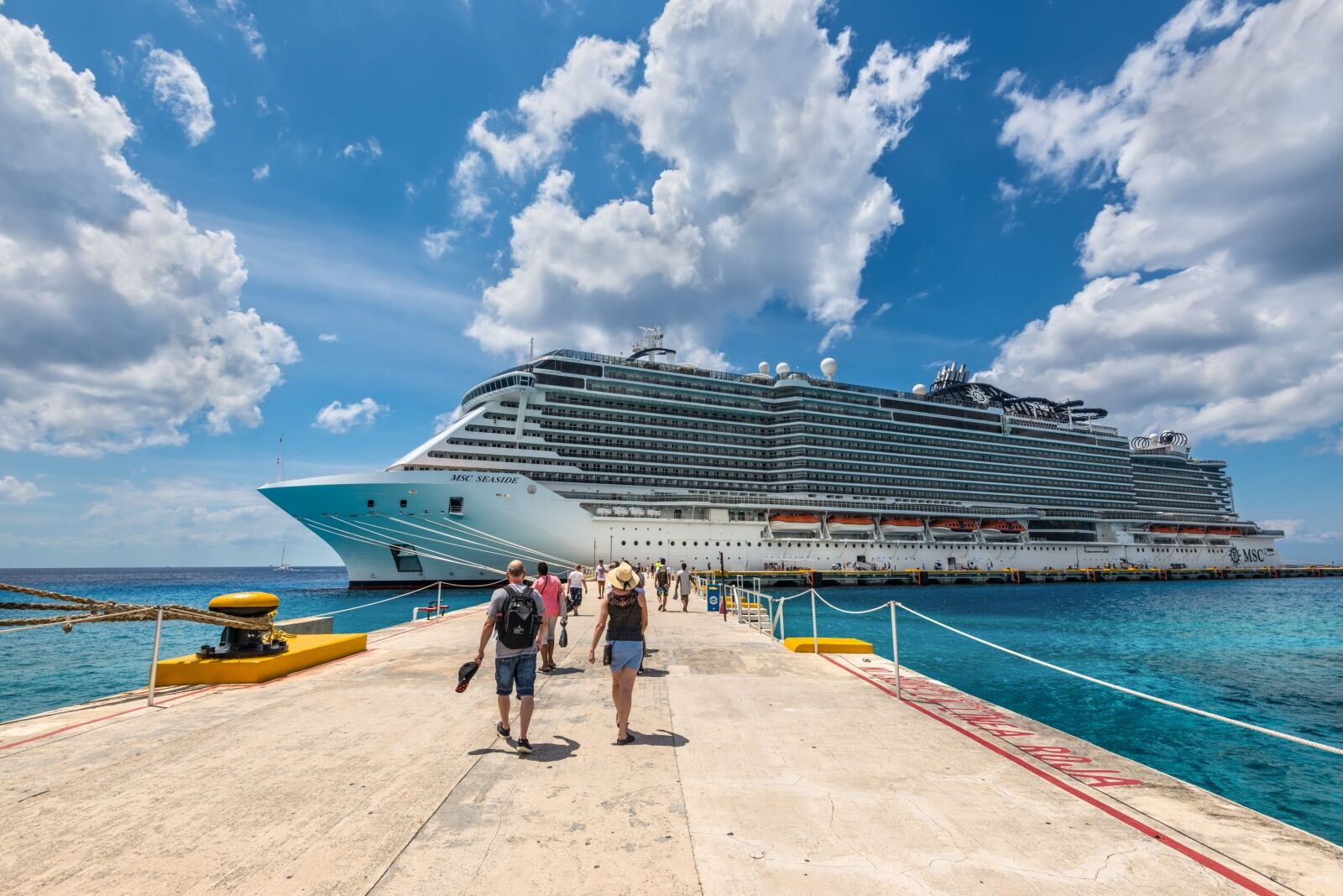
All cruise companies have fixed times by which passengers must return to the ship at each port. Photo: byvalet /Shutterstock
It’s also a fact listed on Norwegian’s excursion’s page. It’s one of the main reasons many cruisers exclusively book official cruise excursions, because they’re the only way to guarantee the ship will wait for you if you’re late. (Third-party and independent activity operators are also unlikely to refund you if the ship makes a last-minute change and skips a port of call).
While I support booking excursions with local operators, it comes with the known risk that you’ll be left behind by the cruise ship if you’re late. That’s exactly what happened in this case, exactly as Norwegian’s website said would happen. While it’s unfortunate and understandably stressful for the travelers, it’s hardly the cruise line’s fault, and I know I’d be a little annoyed if I had made it back in time, only to have the whole ship delayed for a small group people who made a poor decision.
By the way: guests getting left behind at a port is very, very rare — hence why this one occasion is making global headlines.
How to avoid getting left behind by cruise ships
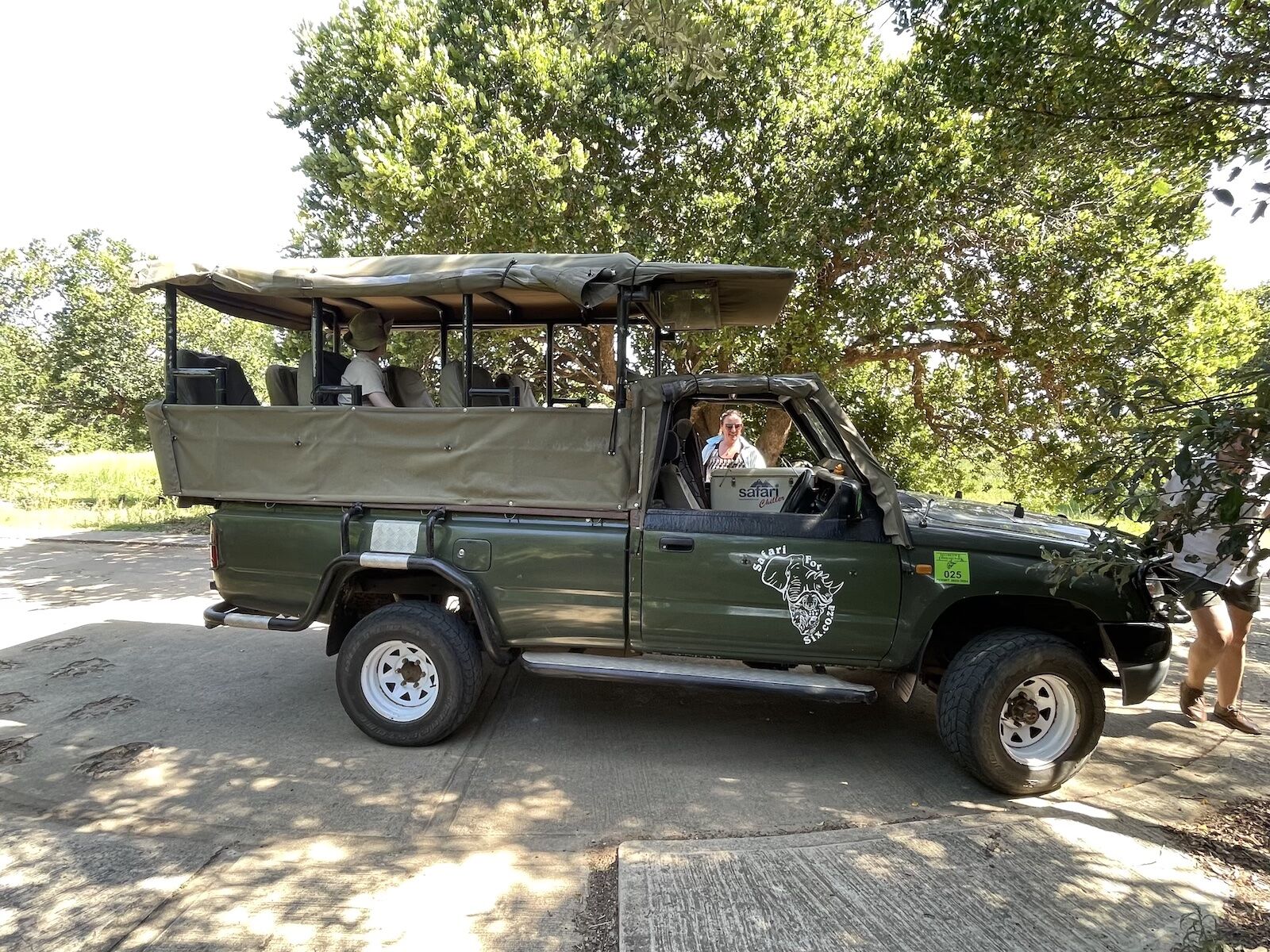
Independent excursions offer plenty of benefits — but come with the downside that the ship won’t wait if you’re late. Photo: Suzie Dundas
The easiest way for travelers to make sure they don’t get left behind at a port is to book an official excursion through the cruise line. However, official excursions are often more expensive, and a much smaller amount of the cost goes directly to local communities. Without knowing what company or excursions the stranded passengers booked, it’s impossible to know if they followed the rules below. But the following guidelines can help ensure you don’t end up waiving your ship goodbye from land.
- Book with a company that does offer a return to ship guarantee : Third-party companies can’t make the ship wait for you, but they can handle all the logistics if you do miss it. ShoreExcursioner.com will pay up to $500 in travel fees if an excursion booked through them causes you to miss your ship, and ToursByLocals will pay for your accommodations and transportation to the next port if you miss your ship. According to their website, it’s only happened twice — ever.
- Read the online reviews : Plenty of independent operators are reputable and responsible, which means they’re very unlikely to play fast and loose with your return time. The best way to determine if an operator seems reputable is to look at online reviews. Feedback from actual past guests can help you gauge how established and professional the company or tour guide is.
- Talk to your operator in advance: Reputable operators will be familiar with hosting cruise guests and understand the ins and outs of cruise ship scheduling. If you’re worried about, message your operator in advance. Ask them if they’ve ever has issues with being back on time, whether they’ve served guests on your cruise before, and how much of a buffer they build in for traffic and other potential delays.
More like this
Trending now, saudi arabia launches a new, alcohol-free cruise line, cruise lines are taking infantilizing measures to keep us healthy because we are so bad at basic hygiene, this cruise ship suite has the best panoramic views of the ocean, how many drinks you'll need to have per day to make a cruise drinks package worth it, according to a travel agent, the world's biggest naked cruise returns in 2025, discover matador, adventure travel, train travel, national parks, beaches and islands, ski and snow.
We use cookies for analytics tracking and advertising from our partners.
For more information read our privacy policy .
Matador's Newsletter
Subscribe for exclusive city guides, travel videos, trip giveaways and more!
You've been signed up!
Follow us on social media.
We’re sorry, this site is currently experiencing technical difficulties. Please try again in a few moments. Exception: request blocked
Security Alert May 17, 2024
Worldwide caution, update may 10, 2024, information for u.s. citizens in the middle east.
- Travel Advisories |
- Contact Us |
- MyTravelGov |
Find U.S. Embassies & Consulates
Travel.state.gov, congressional liaison, special issuance agency, u.s. passports, international travel, intercountry adoption, international parental child abduction, records and authentications, popular links, travel advisories, mytravelgov, stay connected, legal resources, legal information, info for u.s. law enforcement, replace or certify documents.
Share this page:
Denmark Travel Advisory
Travel advisory june 7, 2023, kingdom of denmark - level 2: exercise increased caution.
Reissued after periodic review with minor edits.
Exercise increased caution in the Kingdom of Denmark due to terrorism .
Country Summary: Terrorist groups continue plotting possible attacks in the Kingdom of Denmark. Terrorists may attack with little or no warning, targeting tourist locations, transportation hubs, markets/shopping malls, local government facilities, hotels, clubs, restaurants, places of worship, parks, major sporting and cultural events, educational institutions, airports, and other public areas.
Read the country information page for additional information on travel to the Kingdom of Denmark which includes the Faroe Islands and Greenland.
If you decide to travel to the Kingdom of Denmark:
- Be aware of your surroundings when traveling to tourist locations and crowded public venues.
- Follow the instructions of local authorities.
- Monitor local media for breaking events and adjust your plans based on new information.
- Enroll in the Smart Traveler Enrollment Program (STEP) to receive Alerts and make it easier to locate you in an emergency.
- Follow the Department of State on Facebook and Twitter .
- Review the Country Security Report for Denmark.
- Visit the CDC page for the latest Travel Health Information related to your travel.
- Prepare a contingency plan for emergency situations. Review the Traveler’s Checklist .
Travel Advisory Levels
Assistance for u.s. citizens, denmark map, search for travel advisories, external link.
You are about to leave travel.state.gov for an external website that is not maintained by the U.S. Department of State.
Links to external websites are provided as a convenience and should not be construed as an endorsement by the U.S. Department of State of the views or products contained therein. If you wish to remain on travel.state.gov, click the "cancel" message.
You are about to visit:

An official website of the United States government
Here’s how you know
Official websites use .gov A .gov website belongs to an official government organization in the United States.
Secure .gov websites use HTTPS A lock ( Lock A locked padlock ) or https:// means you’ve safely connected to the .gov website. Share sensitive information only on official, secure websites.
National Terrorism Advisory System
The National Terrorism Advisory System (NTAS) is designed to communicate information about terrorist threats by providing timely, detailed information to the American public. All Americans share responsibility for the nation's security, and should always be aware of the heightened risk of terrorist attack in the United States and what they should do.
This page contains current NTAS advisories (both Alerts and Bulletins), archived copies of expired advisories, and additional information on the NTAS system.
DHS replaced the color-coded alerts of the Homeland Security Advisory System (HSAS) with the National Terrorism Advisory System (NTAS) in 2011.
Current Advisories
Expired advisories.
En español Sa Tagalog 한국어로 trong tiếng việt بالعربية 读中文 讀中文 ในภาษาไทย
The United States remains in a heightened threat environment. Lone offenders and small groups motivated by a range of ideological beliefs and personal grievances continue to pose a persistent and lethal threat to the Homeland. Both domestic violent extremists (DVEs) and those associated with foreign terrorist organizations continue to attempt to motivate supporters to conduct attacks in the Homeland, including through violent extremist messaging and online calls for violence. In the coming months, factors that could mobilize individuals to commit violence include their perceptions of the 2024 general election cycle and legislative or judicial decisions pertaining to sociopolitical issues. Likely targets of potential violence include US critical infrastructure, faith-based institutions, individuals or events associated with the LGBTQIA+ community, schools, racial and ethnic minorities, and government facilities and personnel, including law enforcement.
بالعربية En español 读中文 讀中文 한국어로 Sa Tagalog trong tiếng việt
The United States remains in a heightened threat environment. Lone offenders and small groups motivated by a range of ideological beliefs and/or personal grievances continue to pose a persistent and lethal threat to the Homeland. Domestic actors and foreign terrorist organizations continue to maintain a visible presence online in attempts to motivate supporters to conduct attacks in the Homeland. Threat actors have recently mobilized to violence, citing factors such as reactions to current events and adherence to violent extremist ideologies. In the coming months, threat actors could exploit several upcoming events to justify or commit acts of violence, including certifications related to the midterm elections, the holiday season and associated large gatherings, the marking of two years since the breach of the U.S. Capitol on January 6, 2021, and potential sociopolitical developments connected to ideological beliefs or personal hostility. Targets of potential violence include public gatherings, faith-based institutions, the LGBTQI+ community, schools, racial and religious minorities, government facilities and personnel, U.S. critical infrastructure, the media, and perceived ideological opponents.
- Read the November 30, 2022 Bulletin translated into various languages
The United States remains in a heightened threat environment, as noted in the previous Bulletin, and several recent attacks have highlighted the dynamic and complex nature of the threat environment. In the coming months, we expect the threat environment to become more dynamic as several high-profile events could be exploited to justify acts of violence against a range of possible targets. These targets could include public gatherings, faith-based institutions, schools, racial and religious minorities, government facilities and personnel, U.S. critical infrastructure, the media, and perceived ideological opponents. Threat actors have recently mobilized to violence due to factors such as personal grievances, reactions to current events, and adherence to violent extremist ideologies, including racially or ethnically motivated or anti-government/anti-authority violent extremism. Foreign adversaries—including terrorist organizations and nation state adversaries—also remain intent on exploiting the threat environment to promote or inspire violence, sow discord, or undermine U.S. democratic institutions. We continue to assess that the primary threat of mass casualty violence in the United States stems from lone offenders and small groups motivated by a range of ideological beliefs and/or personal grievances.
- Read the June 7, 2022 Bulletin translated into various languages
The United States remains in a heightened threat environment fueled by several factors, including an online environment filled with false or misleading narratives and conspiracy theories, and other forms of mis- dis- and mal-information (MDM) introduced and/or amplified by foreign and domestic threat actors. These threat actors seek to exacerbate societal friction to sow discord and undermine public trust in government institutions to encourage unrest, which could potentially inspire acts of violence. Mass casualty attacks and other acts of targeted violence conducted by lone offenders and small groups acting in furtherance of ideological beliefs and/or personal grievances pose an ongoing threat to the nation. While the conditions underlying the heightened threat landscape have not significantly changed over the last year, the convergence of the following factors has increased the volatility, unpredictability, and complexity of the threat environment: (1) the proliferation of false or misleading narratives, which sow discord or undermine public trust in U.S. government institutions; (2) continued calls for violence directed at U.S. critical infrastructure; soft targets and mass gatherings; faith-based institutions, such as churches, synagogues, and mosques; institutions of higher education; racial and religious minorities; government facilities and personnel, including law enforcement and the military; the media; and perceived ideological opponents; and (3) calls by foreign terrorist organizations for attacks on the United States based on recent events.
- Read the February 07, 2022 Bulletin translated into various languages
The Secretary of Homeland Security has issued an updated National Terrorism Advisory System (NTAS) Bulletin regarding the current heightened threat environment across the United States. The Homeland continues to face a diverse and challenging threat environment as it approaches several religious holidays and associated mass gatherings that in the past have served as potential targets for acts of violence. These threats include those posed by individuals and small groups engaged in violence, including domestic violent extremists (DVEs) and those inspired or motivated by foreign terrorists and other malign foreign influences. These actors continue to exploit online forums to influence and spread violent extremist narratives and promote violent activity. The ongoing global pandemic continues to exacerbate these threats, in part due to perceived government overreach in implementation of public health safety measures. Further, foreign terrorist organizations and DVEs continue to attempt to inspire potential followers to conduct attacks in the United States, including by exploiting recent events in Afghanistan. As of November 10, 2021, DHS is not aware of an imminent and credible threat to a specific location in the United States.
- Read the November 10, 2021 Bulletin translated into various languages
- Subscribe to NTAS Advisories via Email
The Secretary of Homeland Security has issued a new National Terrorism Advisory System (NTAS) Bulletin regarding the current heightened threat environment across the United States. The Homeland continues to face a diverse and challenging threat environment leading up to and following the 20th Anniversary of the September 11, 2001 attacks as well religious holidays we assess could serve as a catalyst for acts of targeted violence. These threats include those posed by domestic terrorists, individuals and groups engaged in grievance-based violence, and those inspired or motivated by foreign terrorists and other malign foreign influences. These actors are increasingly exploiting online forums to influence and spread violent extremist narratives and promote violent activity. Such threats are also exacerbated by impacts of the ongoing global pandemic, including grievances over public health safety measures and perceived government restrictions.
- Read the August 13, 2021 Bulletin translated into various languages
The Secretary of Homeland Security has issued a new National Terrorism Advisory System (NTAS) Bulletin regarding the current heightened threat environment across the United States. The Homeland is facing threats that have evolved significantly and become increasingly complex and volatile in 2021. These threats include those posed by domestic terrorists, individuals and groups engaged in grievance-based violence, and those inspired or influenced by foreign terrorists and other malign foreign influences. Social media and online forums are increasingly exploited by these actors to influence and spread violent extremist narratives and activity. Such threats also are exacerbated by the impacts from the ongoing global pandemic.
- Read the May 14, 2021 Bulletin translated into various languages
The Acting Secretary of Homeland Security issued a National Terrorism Advisory System (NTAS) Bulletin, subsequently extended by the Secretary of Homeland Security, due to a heightened threat environment across the United States, which DHS believes will persist in the weeks following the successful Presidential Inauguration. Information suggests that some ideologically-motivated violent extremists with objections to the exercise of governmental authority and the presidential transition, as well as other perceived grievances fueled by false narratives, could continue to mobilize to incite or commit violence.
The expiration date for this Bulletin is extended from April 30, 2021 to May 15, 2021.
The Acting Secretary of Homeland Security has issued a National Terrorism Advisory System (NTAS) Bulletin due to a heightened threat environment across the United States, which DHS believes will persist in the weeks following the successful Presidential Inauguration. Information suggests that some ideologically-motivated violent extremists with objections to the exercise of governmental authority and the presidential transition, as well as other perceived grievances fueled by false narratives, could continue to mobilize to incite or commit violence.
Note: The expiration date for this bulletin has been extended to May 15, 2021
- Read this Bulletin translated into various languages
Iran likely views terrorism as an option to deter or retaliate against its perceived adversaries. At this time, we have no information indicating a specific, credible threat to the Homeland; however, we remain concerned about Iran’s potential to carry out cyber attacks. Additionally, Iran and its partners, such as Hizballah, have demonstrated their capability to conduct various operations in the U.S.
The United States designated Iran a “State Sponsor of Terrorism” in 1984 and since then, Iran has actively engaged in or directed an array of violent and deadly acts against the United States and its citizens globally. The United States designated Iran’s Islamic Revolutionary Guard Corps (IRGC) a Foreign Terrorist Organization on April 15, 2019 for its direct involvement in terrorist plotting.
- Read the January 4, 2020 Bulletin translated into various languages
Since 2015, the Department of Homeland Security (DHS) has used this Bulletin to highlight the continuing terror threat to the U.S. Homeland. The United States is engaged in a generational fight against terrorists who seek to attack the American people, our country, and our way of life. An informed, vigilant and engaged public remains one of our greatest assets to identify potential terrorists and prevent attacks.
- Read the July 18, 2019 Bulletin translated into various languages
- Read the January 19, 2019 Bulletin translated into various languages
- Read the September 14, 2018 Bulletin translated into various languages
- Read the November 9, 2017 Bulletin translated into various languages
Since 2015, the Department of Homeland Security (DHS) has used this Bulletin to highlight the continuing threat from homegrown terrorists, many of whom are inspired online to violence by foreign terrorist organizations. The United States is engaged in a generational fight against terrorists, who seek to attack the American people, our country, and our way of life. An informed, vigilant, and engaged public remains one of our greatest assets to identify potential homegrown terrorists and prevent attacks.
- Read the May 15, 2017 Bulletin translated into various languages
Since the last NTAS Bulletin issued in June 2016, our basic assessment of the global threat environment has not changed. We remain concerned about homegrown violent extremists who could strike the homeland with little or no notice. Events since the last NTAS Bulletin reinforce this. Accordingly, increased public vigilance and awareness continue to be of utmost importance. This was, for example, a crucial component of the swift response to the September terrorist acts in New York City and New Jersey.
- Read the November 15, 2016 Bulletin translated into various languages
In December, we described a new phase in the global threat environment, which has implications on the homeland. This basic assessment has not changed. In this environment, we are particularly concerned about homegrown violent extremists who could strike with little or no notice. The tragic events of Orlando several days ago reinforce this. Accordingly, increased public vigilance and awareness continue to be of utmost importance. This bulletin has a five-month duration and will expire just before the holiday season. We will reassess the threats of terrorism at that time.
- Read the June 15, 2016 Bulletin translated into various languages
We are in a new phase in the global threat environment, which has implications on the homeland. Particularly with the rise in use by terrorist groups of the Internet to inspire and recruit, we are concerned about the “self-radicalized” actor(s) who could strike with little or no notice. Recent attacks and attempted attacks internationally and in the homeland warrant increased security, as well as increased public vigilance and awareness.
- Read the December 16, 2015 Bulletin translated into various languages
How Can You Help?
NTAS advisories – whether they be Alerts or Bulletins – encourage individuals to follow the guidance provided by state and local officials and to report suspicious activity. Where possible and applicable, NTAS advisories will include steps that individuals and communities can take to protect themselves from the threat as well as help detect or prevent an attack before it happens. Individuals should review the information contained in the Alert or Bulletin, and based upon the circumstances, take the recommended precautionary or preparedness measures for themselves and their families.
Individuals should report suspicious activity to local law enforcement authorities. Often, local law enforcement and public safety officials will be best positioned to provide specific details on what indicators to look for and how to report suspicious activity. The “ If You See Something, Say Something ® ” campaign across the United States encourages the public and leaders of communities to be vigilant for indicators of potential terroristic activity, and to follow the guidance provided by the advisory and/or state and local officials for information about threats in specific places or for identifying specific types of suspicious activity.
- NTAS Frequently Asked Questions
- Sample NTAS Alert & Bulletin
Subscribe to NTAS Alerts via Email
Subscribe to NTAS Alerts via email through GovDelivery.
Developer Resources
NTAS resources for developers, including API documentation and the NTAS widget that can be added to any website.
- National Terrorism Advisory System (NTAS)
Space elevators could get us to Mars in record time — and Japan is planning one for 2050
- A space elevator could make it much cheaper and faster to get goods to other planets, like Mars.
- The Obayashi Corporation based in Japan announced in 2012 plans to begin building one by next year.
- Not only would it cost $100 billion, there are huge technological and organizational challenges.

Imagine a long tether linking Earth to space that could launch us to orbit at a fraction of the cost and slingshot us to other worlds at record speed.
That's the basic idea behind a space elevator .
Instead of taking six to eight months to reach Mars, scientists have estimated a space elevator could get us there in three to four months or even as quickly as 40 days .
The concept of space elevators isn't new, but engineering such a structure would be no easy feat , and many other issues besides technology stand in the way.
That's why the ambition to seriously build one is fairly recent.
The Japan-based company Obayashi Corporation thinks it has the expertise.
Japan aims to build a space elevator by 2050
Known for constructing the world's tallest tower, the Tokyo Skytree , Obayashi Corporation announced in 2012 that it would reach even loftier heights with its own space elevator.
In a report that same year, the company said it would begin construction on the $100-billion project by 2025 and could start operations as early as 2050.
We checked in with Yoji Ishikawa, who wrote the report and is part of the company's future technology creation department, to see how the project is progressing ahead of 2025.
While Ishikawa said the company likely won't start construction next year, it is currently "engaged in research and development, rough design, partnership building, and promotion," he told Business Insider.
Some have doubted such a structure is even possible.
"It's been sort of a kooky idea," said Christian Johnson, who published a report on space elevators last year in the peer-reviewed Journal of Science Policy & Governance.
"That said, there are some people who are real scientists who are really on board with this and really want to make it happen," Johnson said.
A cheaper route to space
Launching humans and objects into space on rockets is extremely expensive. For example, NASA has estimated its four Artemis moon missions will cost $4.1 billion per launch .
The reason is something called the rocket equation . It takes a lot of fuel to get to space, but the fuel is heavy, which increases the amount of fuel you need. "And so you see the kind of vicious cycle there," Johnson said.
With a space elevator, you don't need rockets or fuel.
According to some designs, space elevators would shuttle cargo to orbit on electromagnetic vehicles called climbers. These climbers could be remotely powered — like through solar power or microwaves — eliminating the need for on-board fuel.
In his report for the Obayashi Corporation, Ishikawa wrote that this type of space elevator could help drop the cost of moving goods to space to $57 per pound. Other estimates for space elevators in general have put the price at $227 per pound.
Related stories
Even SpaceX's Falcon 9, which, at around $1,227 per pound, is one of the cheaper rockets to launch, is still about five times as expensive as the higher cost estimates for space elevators.
There are other benefits besides cost, too.
There's no danger of a rocket exploding , and the climbers could be zero-emission vehicles, Johnson said. At a relatively leisurely pace of 124 miles per hour, the Obayashi Corporation's climbers would travel slower than rockets with fewer vibrations, which is good for sensitive equipment.
Ishikawa said the Obayashi Corporation sees a space elevator as a new kind of public works project that would benefit all of humankind.
There's not enough steel on Earth to make a space elevator
Right now, one of the biggest obstacles to building a space elevator is what to make the tether or tube from.
To withstand the tremendous tension it would be under, the tube would have to be very thick if it were made out of typical materials, like steel. However, "if you try to build it out of steel, you would need more steel than exists on Earth," Johnson said.
Ishikawa's report suggested Obayashi Corporation might use carbon nanotubes . A nanotube is a rolled-up layer of graphite, the material that's used in pencils.
It's much lighter and is less likely to break under tension compared to steel, so the space elevator could be much smaller, Johnson said. But there's a catch.
While nanotubes are very strong, they're also tiny, a billionth of a meter in diameter. And researchers haven't made them very lengthy. The longest is only about 2 feet.
To be properly balanced while still reaching geosynchronous orbit — where objects stay in sync with Earth's rotation — the tether would need to be at least 22,000 miles long, per Ishikawa's report.
"So we're not there," Johnson said of the nanotube length. "But that doesn't mean it's impossible."
Instead, researchers might need to develop an entirely new material, Ishikawa said.
Other obstacles
Whatever the material turns out to be, there are still other problems.
For instance, a space elevator's tether would be under such incredible tension that it would be prone to snapping, Johnson said. A lightning strike could vaporize it. There's also other weather to consider like tornadoes, monsoons, and hurricanes.
Locating the tether base at the equator would lessen the likelihood of hurricanes , but it would still need to be in the open ocean to make it more difficult for terrorists to target, Johnson said.
It would also take a lot of trips to make up for that giant price tag for construction.
That's only scratching the surface of the challenges. And they can't all be solved by one company, Ishikawa said. "We need partnerships," he said. "We need different industries."
"Of course," Ishikawa said, "raising funds is very essential."
That's a lot of obstacles to overcome to start construction in time for operation by 2050, especially since Ishikawa estimated it would take 25 years to build. He noted that the 2050 estimate always came with caveats about the technology progressing. "It's not our goal or promise," he said, but the company is still aiming for that date.
"I think that those time estimates are optimistic," Johnson said, "even assuming there was a breakthrough tomorrow."
Watch: Why Hot Air Balloons Are So Expensive
- Main content
U.S. Department of the Treasury
Media advisory - fincen director andrea gacki to travel to arizona for beneficial ownership outreach events.
WASHINGTON – On June 11 and 12, Financial Crimes Enforcement Network (FinCEN) Director Andrea Gacki will travel to Phoenix and Tucson, Arizona, where she will participate in beneficial ownership reporting outreach events organized in partnership with Senator Kyrsten Sinema’s (I-AZ) office.
Under the Corporate Transparency Act—a bipartisan law enacted to curb illicit finance by supporting law enforcement efforts—many small businesses are now required to report basic information to the Federal government about the real people who ultimately own or control them. During both events, Director Gacki will meet with small business owners and other key stakeholders to discuss these new beneficial ownership reporting requirements.
Filing is quick, secure, and free of charge. It is not an annual requirement: Unless a company needs to update or correct information, it only needs to file once. FinCEN expects that most companies will be able to file without the help of an attorney or accountant, and that the filing process for those with simple ownership structures may take 20 minutes or less. Companies that existed before 2024 have until January 1, 2025 to file, while companies created or registered in 2024 must file within 90 days of receiving creation/registration notice. More information, along with FinCEN’s E-Filing System, is available at https://www.fincen.gov/boi .
Opening remarks at both events are open to press, and Director Gacki will be available for interviews.
While in Tucson, Director Gacki will also lead a counter-fentanyl information exchange, which is closed to press. FinCEN’s Promoting Regional Outreach to Educate Communities on the Threat of Fentanyl (PROTECT) information-sharing series, held in U.S. cities that are highly impacted by the opioid epidemic, brings law enforcement agencies and financial institutions together to share typologies and approaches on combatting illicit fentanyl trafficking.
Who: Financial Crimes Enforcement Network (FinCEN) Director Andrea Gacki
What: Beneficial ownership outreach events in Arizona
When: Tuesday, June 11, 9:30 – 11 a.m.
Where: Tucson Hispanic Chamber of Commerce, 823 E Speedway Blvd, Tucson
When: Wednesday, June 12, 2 – 4 p.m.
Where: Phoenix College, Hacienda Conference Room (F121) Parking: North parking lot, 3100-3148 N 11th Ave, Phoenix, AZ 85013
Media interested in covering this visit should RSVP to [email protected] by 5:00 p.m. ET on Monday, June 10, to ensure they receive any relevant logistical information.
- Media & Industry
- Meetings & Events
- Select Language 简体中文 繁體中文(香港) 繁體中文(臺灣) India (English) Bahasa Indonesia 한국어 ภาษาไทย Tiếng Việt Singapore (English) Philippines (English) Malaysia (English) Australia/New Zealand (English) Français Deutsch Italiano Español United Kingdom (English) Nordic countries(English) Canada (English) Canada (Français) United States (English) Mexico (español) Português العربية Japan(日本語) Global (English)
- India (English)
- Bahasa Indonesia
- Singapore (English)
- Philippines (English)
- Malaysia (English)
- Australia/New Zealand (English)
- United Kingdom (English)
- Nordic countries(English)
- Canada (English)
- Canada (Français)
- United States (English)
- Mexico (español)
- Global (English)
- Fujiyoshida
- Shimonoseki
- Ishigaki Island
- Miyako Island
- Kerama Island
- Tokyo Island
- Koka & Shigaraki
- Hida Takayama
- Ginza, Nihonbashi
- Beppu & Yufuin (Onsen)
- Ginzan Onsen
- Nagasaki Islands

- Kumano Kodo
- Shikoku Karst
- Amami Oshima
- Hachimantai
- Omihachiman
- Aizuwakamatsu

- Diving in Japan
- Skiing in Japan
- Seasonal Flowers in Japan
- Sustainable Outdoors
- Off the Beaten Track in Japan
- Scenic Spots
- World Heritage
- Home Stays & Farm Stays

- Japanese Gardens
- Japanese Crafts
- Temple Stays
- Heritage Stays
- Festivals and Events
- Theater in Japan
- Japanese Tea Ceremony
- Cultural Experiences in Japan
- Culture in Japan

- Local Cuisine Eastern Japan
- Local Cuisine Western Japan
- Local Street Food
- Japan's Local Ekiben
- Japanese Whisky
- Vegetarian and Vegan Guide
- Sushi in Japan Guide
- Japanese Sake Breweries

- Art Museums
- Architecture
- Performing Arts
- Art Festivals
- Japanese Anime and Comics
- Japanese Ceramics
- Local Crafts

- Scenic Night Views
- Natural Wonders
- Theme Parks
- Samurai & Ninja
- Iconic Architecture

- Wellness Travel in Japan
- Japanese Ryokan Guide
- A Guide to Stargazing in Japan
- Relaxation in Japan
- Forest Bathing (Shinrin-yoku)

- Experiences in Japan
- Enjoy my Japan
- National Parks
- Japan's Local Treasures
- Japan Heritage
- Snow Like No Other
- Wonder Around Japan

- Visa Information
- Getting to Japan
- Airport Access
- COVID-19: Practical Information for Traveling to Japan
- Anime Tourism
- Countryside Stays
- Accessible Tourism
- Hokkaido Great Outdoors
- Scenic World Heritage in Tohoku
- Shikoku’s Nature and Traditions
- Southern Kyushu by Rail

- Traveling by Rail
- How to Travel by Train and Bus
- JR Rail Passes
- Scenic Railways
- Renting a Car
- Sustainable Travel in Japan
- Travel Brochures
- Useful Apps
- Online Reservation Sites
- Eco-friendly Accommodation
- Luxury Accommodations
- Traveling With a Disability
- Hands-free Travel
- How to Book a Certified Tour Guide
- Volunteer Guides
Tourist Information Center

- Japanese Manners
- Spring in Japan
- Summer in Japan
- Autumn in Japan
- Winter in Japan
- Cherry Blossom Forecast
- Autumn Leaves Forecast

Japan Visitor Hotline
- Travel Insurance in Japan
- Japan Safe Travel Information
- Accessibility in Japan
- Vegetarian Guide
- Muslim Travelers
- Safety Tips

- JAPAN Monthly Web Magazine
- Arts & Cultures
- Nature & Outdoor
- Festivals & Events
- Insider Blog
- Things to do
- Local Guides
- Food & drink
- Traditional
- Hokuriku Shinetsu

My Favorites
${v.desc | trunc(25)}
Planning a Trip to Japan?
Share your travel photos with us by hashtagging your images with #visitjapanjp
Table of Contents
Jnto official sns accounts, information about noto peninsula earthquake, guide for when you are feeling ill, covid-19: practical information, warnings and advisories, safe travel portal site, safety tips for travelers, major urban railways, other railways, national airlines and lccs, mandatory registration for unmanned aircraft, a message from kono taro, minister for consumer affairs and food safety, request for discontinuation of use of red mold rice materials by kobayashi pharmaceutical.
Japan National Tourism Organization (JNTO) provides useful information on weather warnings/advisories and latest news of transportation services during your stay in Japan.
X (Twitter) @JapanSafeTravel
Follow @JapanSafeTravel Log in to view the latest posts.
Weibo/微博 @安心访日JapanSafeTravel
Public transportation operation status in the hokuriku region and surrounding areas.
For the latest operation status, please check the information provided by each transportation operator.
[Shinkansen]
[Local trains]
- Noto Railway (Nanao Station – Anamizu Station)
- Noto Airport (Ishikawa Pref.)
- Komatsu Airport (Ishikawa Pref.)
- Niigata Airport (Niigata Pref.)
- Toyama Airport (Toyama Pref.)
Niigata Port (Niigata City, Niigata Pref.)
Intercity buses
- Kanazawa- Nagoya/Takayama/Niigata/Toyama
Emergency Disaster Support: FREE over-the-phone interpreting service
(BRIDGE MULTILINGUAL SOLUTINS, inc.)
- Free interpreting service for non-Japanese speakers who were affected by the earthquake and tsunami in Noto region
- This service is available 24/7 in any language mainly in English, Chinese, Korean, Portuguese and Spanish.
03-5366-6076 (From Japan only)
Opening Status of Tourist Facilities
Visit Kanazawa
Fukui Prefecture
Accommodations, sightseeing spots, tourist facilities, etc. in Fukui prefecture are operating and open for business as usual.
Please check the following websites before visiting just in case.
Enjoy Fukui
Tsuruga Guide
JNTO operates a visitor hotline 24 hours a day, 365 days a year. Call for tourist information or assistance in the case of accidents and emergencies including COVID-19. Support is available in English, Chinese and Korean.
- From Japan 050-3816-2787
- From Overseas +81-50-3816-2787
JNTO operates a dedicated website to provide useful information such as entry procedures, required documents, emergency tips, travel etiquette, FAQs, and so on.
Languages: English / 한국어 / 简体中文 / 繁體中文(臺灣) / 繁體中文(香港) / Tiếng Việt / Bahasa Indonesia
NHK (Japan Broadcasting Corporation) is Japan's only public broadcaster. NHK WORLD-JAPAN is NHK's international service delivering the latest information about Japan through TV, radio and the Internet.
Ministry of Land, Infrastructure, Transport and Tourism
Hokkaido Prefecture
Tourist Information Centers throughout Japan certified by JNTO can offer basic travel tips and up-to-date information on popular tourist attractions to comprehensive advice tailored to your specific needs.
Please check the website below to find the information centers nearby.
Please Choose Your Language
Browse the JNTO site in one of multiple languages

IMAGES
COMMENTS
Japan - Level 1: Exercise Normal Precautions. Reissued after periodic review without changes. Exercise normal precautions in Japan. Read the country information page for additional information on travel to Japan. If you decide to travel to Japan:
If you need after-hours assistance in an emergency, please call 03-3224-5000 and ask to speak with the Embassy's duty officer. Emergency Contact Information for U.S. citizens. Emergency Preparedness for U.S. citizens in Japan. Sources of Help, including counseling services. Medical Assistance in Japan.
Last updated: Wednesday, May 31st, 2023. Get ready for your dream trip to Japan! Japan is now open to travelers from all countries or regions! Those who enter Japan on or after April 29th 2023 are not be required to present a valid vaccination certificate or a Covid-19 negative test certificate.
The effect of Pre-Clearances (i.e. visa exemptions) granted by the Japanese Government to APEC Business Travel Card (ABTC) issued by the following countries was also resumed on October 11, 2022. For more information on the APEC Business Travel Card (ABTC), please refer to the link below: APEC Business Travel Card (ABTC)(Japanese)
August 26, 2020. Reconsider travel to Japan due to COVID-19. Read the Department of State's COVID-19 page before you plan any international travel. The Centers for Disease Control and Prevention (CDC) has issued a Level 3 Travel Health Notice for Japan due to COVID-19. Japan has resumed most business operations (including day cares and schools).
Learn about the coronavirus (Covid-19) situation in Japan, including latest travel advisories, closures, and cancelled events in Japan. Always check with your local authority regarding their latest travel and health advisories if you are planning to travel to Japan.
Japan Travel Advisory: Level 1: Exercise Normal Precautions: January 8, 2024: Kiribati Travel Advisory: Level 1: Exercise Normal Precautions: August 9, 2023: ... Saba Travel Advisory: Level 1: Exercise Normal Precautions: October 16, 2023: Take 90 Seconds for Safer Travel. Travel Advisory Levels.
Coronavirus (COVID-19) advisory information - Japan National Tourism Organization; We welcome you to visit Japan. Empowering the Disabled. This movie introduces the new essential steps ahead of an unforgettable travel in Japan. General Information. Japan: the Official Guide. Japan National Tourism Organization.
Monitor travel advisories and alerts and read travel tips from the US Department of State. Enroll in the Smart Traveler Enrollment Program (STEP). ... Use the Healthy Travel Packing List for Japan for a list of health-related items to consider packing for your trip. Talk to your doctor about which items are most important for you.
Japan is a fascinating destination that offers a rich culture, natural beauty and modern attractions. Before you travel, consult the Travel Advice and Advisories from the Government of Canada for Japan to learn about the safety, entry and exit requirements, health, laws and culture, and natural disasters and climate of this country.
Still current at: 9 June 2024 Updated: 21 February 2024 Latest update: Removal of outdated information about earthquakes and tsunami at Noto Peninsula ('Warnings and insurance' page) and addition ...
Is it safe to travel to Japan right now? The latest travel advice after earthquake and tsunami warning. The west coast of the country was struck by a 7.6 magnitude earthquake on January 1.
Tourists from all countries or regions can visit Japan on a package tour (including non-guided package tour). Learn about the current situation, checklist for tourists, entry restrictions and safety measures before you travel.
5. Learn how to use a bidet toilet. Called "washlets," Japan's high-tech, electronic bidet toilets will wash and dry your delicate parts with the touch of a button. (Don't worry about any language barrier; the pictograms on the buttons are easy to understand). Other toilet customs in Japan might throw you for a loop.
9. Visit Japan Web. Visit Japan Web is a convenient way to register information for quarantine, immigration and customs procedures before you enter Japan. You can upload an electronic certificate of a negative COVID-19 test result for a test conducted within 72 hours of travel, and generate a QR code. The service is available in English and ...
Travel Health Notices. CDC uses Travel Health Notices (THNs) to inform travelers about global health risks during outbreaks, special events or gatherings, and natural disasters, and to provide advice about protective actions travelers can take to prevent infection or adverse health effects. A THN can be posted for: 1) a disease outbreak (higher ...
Travel Advisory Level 1: Exercise Normal Caution Travel Advisory Level 1: Japan - Level 1: Exercise Normal Precautions Read More... U.S. Embassy & Consulates in Japan. Language ... CDC Travel Notice for Japan - Warning Level 3, Avoid Nonessential Travel. By U.S. Mission Japan.
Please enroll in the Smart Traveler Enrollment Program (STEP) to receive alerts and be located in an emergency. Please call 1 (888) 407-4747 (U.S. and Canada) or 1 (202) 501-4444 (overseas) or contact the nearest U.S. embassy or consulate. As a first step in planning any trip abroad, check the Travel Advisories for your intended destination.
Discover amazing travel experiences in Japan with Lonely Planet's insider tips, inspirational traveler stories and expert guidance from around the world. ... tips and advice. The 10 most wonderful places to visit in Japan. Mar 28, 2024 • 6 min read. From buzzing cities to pristine island getaways, here's our guide to the best places to visit ...
Are booked in any fare class, including Basic Economy. Bought your ticket by May 6, 2024. Are scheduled to travel May 6 - August 31, 2024. Can travel May 12 - September 20, 2024. Change your origin and destination to: Canoas Air Force Base, Brazil - Alternative for Porto Alegre (QNS), Caxias do Sul (CXJ), Chapeco (XAP), Florianopolis (FLN ...
By Yan Zhuang. The writer spent several days elbowing through crowds in Kyoto and Fuji City, Japan. June 7, 2024. On two recent occasions, a foreign tourist walked into Shoji Matsumoto's ...
E xperienced cruisers probably know lots of tips and tricks for traveling on cruise ships: make your dining reservations early, do laundry on board instead of overpacking, and don't fill your days at sea with back-to-back activities.. But even first-time cruisers know one major rule that applies to all cruise lines, all cruises, and all ships, no matter where in the world you are: don't ...
new travel restrictions On November 29, 2021, the Government of Japan announced strengthened quarantine measures in response to the emergence of the Omicron variant of COVID-19. Effective November 30, 2021 at 00:00, entry of new, non-resident foreign nationals (to include students on educational travel) will be suspended.
Denmark Travel Advisory. Reissued after periodic review with minor edits. Exercise increased caution in the Kingdom of Denmark due to terrorism. Country Summary: Terrorist groups continue plotting possible attacks in the Kingdom of Denmark. Terrorists may attack with little or no warning, targeting tourist locations, transportation hubs ...
National Terrorism Advisory System. The National Terrorism Advisory System (NTAS) is designed to communicate information about terrorist threats by providing timely, detailed information to the American public. All Americans share responsibility for the nation's security, and should always be aware of the heightened risk of terrorist attack in ...
The latest travel news, deals, guides and tips from the travel experts at USA TODAY. All the travel insights you need to plan your dream vacation.
Space elevators could get us to Mars in record time — and Japan is planning one for 2050. Jenny McGrath. Jun 5, 2024, 10:43 AM PDT. The Obayashi Corporation's concept drawing for its proposed ...
WASHINGTON - On June 11 and 12, Financial Crimes Enforcement Network (FinCEN) Director Andrea Gacki will travel to Phoenix and Tucson, Arizona, where she will participate in beneficial ownership reporting outreach events organized in partnership with Senator Kyrsten Sinema's (I-AZ) office.Under the Corporate Transparency Act—a bipartisan law enacted to curb illicit finance by supporting ...
JNTO operates a visitor hotline 24 hours a day, 365 days a year. Call for tourist information or assistance in the case of accidents and emergencies including COVID-19. Support is available in English, Chinese and Korean. From Japan 050-3816-2787. From Overseas +81-50-3816-2787.